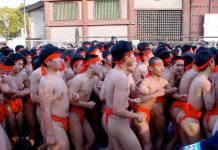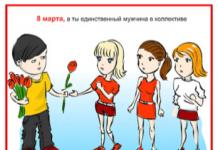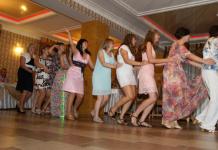In connection with the ongoing events of the murder of Volkov and the fight in the Don sanatorium, I would like to tell you how the Chechens managed to clear their land of the "Russian invaders".
At the same time, it should be noted that before the eviction of the Chechens during the Great Patriotic War, they lived far in the mountains, and in the same city of Grozny or Gudermes they never existed. These cities were built by Russians and Russians have always lived in them, and only after the return of the Chechens from deportation did they begin to settle in cities. Well, the Tersko-Sunzhensky region, in general, has always been inhabited by the Cossacks and all the villages located there were also built by the Russians, and the Chechens never lived there. Why and thanks to whom these primordially Russian lands were assigned to the Chechen-Ingush Autonomous Soviet Socialist Republic, and not to the Stavropol Territory, I cannot say, but if you look, you can find.
I myself was born and raised in Chechnya and I can tell you how they managed to expel more than 500 thousand people. from the Chechen Republic in the period from 1989 to 1993. By the beginning of the first Chechen war, less than 10 thousand Russians lived in Chechnya, and now you will not find even 10 Russian families, only a few single grandmothers.
So it all began before the collapse of the USSR, when they felt the wind of change. We had in Grozny both an apartment in the center and a private house near the Ordzhonikidze stadium, which is in the builders' village in the factory district. In the apartment, they constantly cut the door to us (a soft cover on the door) and left a note "Russians, go home." And stones were thrown into a private house with exactly the same or similar note in content. Father's car ("kopeck") was constantly scratched with nails along the entire body, and glass was also broken, and one fine night, when there was nothing to scratch and break (and everything looked like scrap metal), they set it on fire, stupidly punching a hole in the area a gas tank and stuffing a rag there, but there was no gasoline there, so it did not burn out, as a result, a Chechen neighbor took it for himself for a symbolic 500 thousand rubles. which at today's exchange rate is probably 500 rubles. This is when the cost of the car is a hundred times more.
But these were still flowers, the worst of all was the psychological pressure, when right on the street, on a bus, in a store, at a school or in public places (for example, in a polyclink), they began to ask you: "When will you, Russian pigs, go to your home ? ". Whatever you answered, there followed a monologue that if you do not leave, then we will cut you all.
Moreover, completely different categories of Chechens asked and conducted such conversations, ranging from teenagers to very old people; both women and men. At the same time, the other Chechens standing nearby never intervened and did not defend the Russian, even if it was a neighbor or even a "friend" type.
In addition, there was propaganda on local television day and night that the Russian invaders were to blame for the deaths of hundreds of thousands of Chechens during their eviction. They showed Chechen old men in hats, who, from morning until late at night, remembered how they were destroyed during eviction. Although if we turn to the official statistics, it will be clear that this is a complete lie, and they, on the contrary, were provided with medical care with which they were never familiar, and, as Zhirinovsky rightly said, “if the people in deportation increased their number by three times up to 1 million people, then what the hell is deportation ?! "
It was no better at work either. In those departments where the chiefs were Chechens, the Russians were simply not paid a salary, and if they found a replacement from Chechens, they were immediately fired. And there was no opportunity to get a job anywhere - none of the Chechens had ever taken Russians to work, well, if only as a slave in an aul!
Everywhere in the entrances and on the fences there were inscriptions "Russian pigs - go home", "freedom of Ichkeria", "glory to Dudaev", etc. And it was this psychological pressure that was the worst.
Well, after the collapse of the USSR and Dudayev's rise to power, they switched from threats to business and began to kill and rape Russians, without embarrassing anyone right on the street in broad daylight. And when the Russians went to the police or the hospital, they were sent there to x ... d. As a result, from 1991 to 1993, the entire Russian population left Chechnya and Ingushetia (where everything was the same one to one). At the same time, real estate prices fell so much that, having sold an apartment there, provided that the Chechen buyers would give the money, in Russia, even in the most run-down village, nothing could be bought. As a result, they had to sell through acquaintances of Chechen intermediaries working in the Ministry of Internal Affairs or in the Dudayevskaya guard. But this did not guarantee that the Russian seller would receive money or even be killed, just when the conflict escalated into an acute phase, the Chechen intermediaries never went into open conflict with other Chechens over the Russians.
But when the lawlessness began, the Russians were already ready for it, and they simply began to pack their things faster, and when it got dark, they did not climb out into the street at all, and the children were always accompanied by one of the adults during the day. Every day we constantly heard and saw how someone from the Russians was either killed, or raped, or kidnapped. Well, no one paid attention to the beatings. They killed very cruelly, cutting off heads, torturing, etc. Very often they simply cut out the whole family together with the children and the elderly. As a result, the bulk of the Russians left in just two years, already in 1993 there were very few Russians, and mainly lonely old people or old people who had not yet been taken away by their children. And, again, the worst thing was the psychological pressure that was exerted every day! According to rough estimates, between 30,000 and 50,000 Russians were killed in Chechnya and Ingushetia over the years. But over all these years, no one has raised the issue of the genocide of the Russian-speaking population in Chechnya in the period 1991-1994. And, apparently, never and none of these murderers will be punished.
It is also worth noting the criminal actions of the Russian authorities who were then at the helm. I can't say the exact date, but one summer day in 1991, an order came from Moscow to all officers to collect their belongings and families and dump them from Chechnya, as a result, all army units were simply left to be plundered by the Chechens. There was a military unit not far from our house in the factory district, and Russian acquaintances told me that the Chechens were taking out and even simply carrying out armfuls of machine guns and other weapons for a whole week every day. In other words, the Russian-speaking population was not only thrown at the mercy of the Chechens, but they were also left with the entire army arsenal located in the Chechen Republic. Those. the criminals were given weapons. After that, every Chechen man openly carried a submachine gun or a pistol with him, without embarrassment, and in the center of Grozny there was a real arms market, where you could come and openly buy whatever you wanted. What do you think the Chechens fought for? They fought for freedom in the truest sense of the word, and not in the way it is meant, for example, in the United States. Having stolen any car, a Chechen could drive it completely freely in the Chechen Republic, and no one would ever ask you for documents. A Chechen could get himself slaves from Russian pigs and no one would say anything to him for that. There was no power as such. Dudayev was, rather, simply the leader of the new free Chechnya, but even then not all Chechens supported him.
It was for this complete freedom that the Chechens fought, and you can understand them! Although by the beginning of the first Chechen war, it was already clear that if there was no war with Russia, they would cut themselves off and the republic would burn into civil war. As far as I remember, the first entry of our tanks into Grozny was in October 1994, and they went under the cover of the Chechen militia from the southern regions of the Chechen Republic, opposed to Dudayev. But the cover rushed to loot the shops, and every one of the tanks was destroyed. In general, my point of view is that Russia was dragged into the war in Chechnya by the Chechens themselves, and Grachev was simply paid for bringing our troops there. But this, of course, is just my opinion, not supported by anything.
On February 23, I, like most of the male population of Russia, raised a couple of toasts to the defenders of the Fatherland. I drank these glasses alone, but from the heart, mentally congratulating all the soldiers who defended the Motherland. And he spent most of the day at the TV screen, clicking on the remote control. 70 percent of the holiday programs were devoted to the Great Patriotic War, 10% to Afghanistan and 20% to Chechnya. Having looked at the dead bearded faces of Chechen bandits and the ruins of Grozny, I wondered: why did this Chechnya become such a thorn in the paw of the Russian bear, why was it not swatted in a couple of days, like a cockroach?
There are two reasons for this for me. Firstly, the thoroughly corrupt top of the Russian army, which during the years of the Chechen campaigns was looking for personal gain, and did not work in the interests of the country. Secondly, the absence of all human qualities in the Chechen militias - I will not call them militants: for me this is a cinema genre, besides, such a word implies at least some nobility. The combination of these two factors led to the fact that too many Russians died in Chechnya for such an anti-terrorist operation. First-year soldiers who did not know how to properly hold a machine gun were going to fight in the mountains. The Chechens, under the leadership of mercenaries, shot at these defenseless targets and began to consider themselves the best warriors in the world. In their opinion, Vainakhs = terminators. And this is despite the fact that Chechnya was smashed to pieces, and part of the population was not destroyed just because Russia is a civilized Christian country.
So after all, who are the Chechens and why have they always been a problem for Russia? Here you cannot do without a cursory excursion into history.
History does not know the exact origin of the Proto-Vainakh tribes. The first written source about the ancient period in the history of the Vainakhs is the work of a prominent Armenian scientist-encyclopedist of the 6th century. Anania Shirakatsi "Armenian Geography". There he mentions the self-name of the Chechens "Nokhchamatians" - people who speak Chechen: "At the mouth of the Tanais River live Nakhchamateans (Naksamats) and another tribe." Where they came from there is not important to us. Their lifestyle is important. Nokhchi have always been a headache for neighbors. While other tribes were engaged in cattle breeding or agriculture, the ancient Chechens did not recognize work as such and traded in robbery and horse-stealing.
The history of the Russian-Chechen confrontation dates back to the end of the 17th - the beginning of the 18th century, when Russia waged numerous long and stubborn wars with Turkey, Persia, and the Crimean Khan. The Caucasian ridge was a natural barrier between Russia and its enemies, so it was strategically important for the Empire to keep it under control. At this time, the highlanders began their terrorist attacks. One of the first documented facts of an attack on Russian troops was the attack of the Chechens in 1732 on a Russian battalion, which was making a transition from Dagestan to the Stavropol Territory. From 1785 to 1791, gangs of Chechens treacherously (otherwise they could not) attacked Russian farmers who were developing areas of the present Stavropol Territory. At the end of the victorious war with Napoleon, Alexander I began a series of Caucasian wars. This step was prompted by constant Chechen robberies, robberies, massive cattle thefts, slave trade, attacks on military garrisons. These wars lasted until 1864, and acquired the greatest scope in 1834, when Imam Shamil became the head of the rebellious highlanders.
By the way, this character is now an example for every Chechen. Young Chechen pop stars are singing songs about the enemy of Russia, on whose conscience more than one liter of shed Orthodox blood is shed.
Shamil was caught and destroyed. Together with him, a number of rebellious imams were also used. When Field Marshal Paskevich took over the reins of the army, our army resorted to the "scorched earth" tactic - the rebellious auls were completely destroyed, and the population was completely destroyed. There was no other way out - only this helped to break the resistance of the Chechens. However, separate gang attacks were observed until the 1917 revolution. Well, Nokhcho cannot live differently.
Why did they hold on for so long? Maybe because they are strong, brave and smart? The answer to this question will be given by the following historical fact - already during the Civil War.
Anton Ivanovich Denikin, one of the main leaders of the White movement, was under the command of the so-called Wild Division, formed from Chechens and Ingush. "Savages" went to fight to him, thinking that in this way they oppose the Russian Empire. In the memoirs of a certain person with the significant surname Breshko-Breshkovsky, it was mentioned about the valor and invincibility of this division. Like, they all showed themselves to be just John Rimbaud during the First World War. There is no information about the personality of this Breshko-Breshkovsky in history, but his myth about the Wild Division remained.
In 1919, Denikin sent these "terminators" under the leadership of General Revishin to Ukraine to suppress Makhno's uprising. A wild cavalry division, reinforced by several marching squadrons and artillery, was in the second echelon of the strike group. Moving through the territory of Ukraine, they really forced themselves to be afraid - they robbed the local population, raped women, slaughtered adults and children.
And in the very first real battle, the Chechen-Ingush "army" was practically destroyed. In that battle, the opponents repeatedly met in hand-to-hand combat, and at the close of the battle, the Makhnovists shot several native squadrons from tachan machine guns. The "Wild Division" lost more than a thousand soldiers, and the Makhnovist insurgents - about forty. This is how eyewitnesses of those events portrayed the defeat of the Chechens:
- "with one blow, the head, neck and half of the body were cut, or half of the head was beveled as accurately as if they were cutting a watermelon."
- “The wounds of the Chechens were mostly fatal. I myself saw the severed skulls, I saw a cleanly chopped off hand, a shoulder chopped up to the 3-4th rib - only well-trained cavalry soldiers could chop like this.
After that, the surviving Chechens categorically declared that they did not want to fight anymore, they voluntarily abandoned their posts and Denikin's army and went to their place in the Caucasus. General Revishin later managed to create another Wild Division, but there was no semblance of discipline in it - only primitive robbery remained - the main craft of the Chechens from century to century. The collective was called the Chechen Horse and was transferred to the Crimea. What they were doing there was excellently and succinctly described by General Slashchev-Krymsky:
- “Magnificent robbers in the rear, these mountaineers of the Red raid at the beginning of February on Tyup-Dzhankoy slept superbly, and then fled just as magnificently, abandoning all six guns. There were so few Reds that the counterattack I launched did not even find them, but found only the guns that had fallen through the ice. I especially felt sorry for the two lungs: the castles and panoramas were blown away with red and the bodies of the guns remained. "
And summed up the Chechen "exploits" of the Civil War, the officer of the Wild Division Dmitry de Witte.
“The specific weight of a Chechen as a warrior is small; by nature he is an abrek robber, and, moreover, not one of the brave: he always plans a weak sacrifice for himself, and in case of victory over it, he becomes cruel to the point of sadism. In battle, his only engine is the thirst for robbery, as well as the feeling of animal fear of the officer. They cannot withstand a stubborn and prolonged battle, especially on foot, and they easily, like any wild man, panic at the slightest failure. Having served for about a year among the Chechens and having visited them at home in the auls, I think that I will not be mistaken in asserting that all the beautiful and noble customs of the Caucasus and adats of antiquity were created not by them and not for them, but, obviously, by more cultured and gifted tribes ".
Under Soviet rule, Chechnya was given a lot of land, and Sharia was recognized. The area began to develop. In 1925 the first Chechen newspaper appeared. In 1928 - Chechen radio. Illiterate Chechens began to learn the alphabet. In Grozny, two pedagogical and two oil technical schools were opened, and then the first national theater. True, the creation of a Chechen intelligentsia did not work out. Why - and look who is the worst student at the institutes. In MGIMO, RSSU, RSUH, for example, Chechens, Ingush and, for some reason, Vietnamese are considered the most stupid.
How did the descendants of the Wild Division thank the Soviet authorities? Terror and pogroms of power institutions, disruption of grain procurement in the plains of Dagestan and Ingushetia, the demand to replace the elected bodies of Soviet power with the elders of Chechen teips. In total, from 1920 to 1941, 12 major armed uprisings (involving from 500 to 5000 bandits) and more than 50 less significant ones took place on the territory of Chechnya and Ingushetia alone.
And now let's jump over to the terrible years of the Great Patriotic War. From June 22 to September 3, 1941, over 40 rebel manifestations were recorded. By February 1943, gangs in 20 villages of Chechnya numbered more than 6,540 people. And this is the most difficult time for the country. So, was the decree of the State Defense Committee of the USSR No. 5073 of January 31, 1944 on the liquidation of the Chechen-Ingush Autonomous Soviet Socialist Republic and the deportation of Chechens, Ingush, Karachais, Balkars from their places of permanent residence really unjustified?
Only in 1957, the Supreme Soviet of the USSR issued a resolution on the restoration of the Chechen-Ingush Autonomous Soviet Socialist Republic and allowed the repressed peoples to return to their historical homeland. The Chechen issue came up again. Despite the fact that in the shortest possible time the Russians brought the region to the pre-war level of oil production and industrial development, the attitude of the locals towards them did not change. The more indigenous people came, the more Russian hard workers left, not wanting to risk their lives. In the 90s, when there were almost no Russians left in Chechnya, production, economics, and science were finally stopped for them.
Why was it that neither tsarist Russia, nor Soviet, nor modern Russia could finally suppress Chechnya? After all, the Chechens are still warriors. And try to remove cockroaches without the help of chemistry. You slap them with a slipper, and new ones creep out from under the plinth, and even hiding behind females of cockroaches. You think whether it's worth killing females, it's a pity, but at this time, under the plinth, these insects are desperately copulating, dreaming that their children will quickly grow up and climb on you. Cockroaches do not have human morality, they are ready to go to any meanness and meanness. And you have morality - you don't want to take "Dichlorvos".
It is also hard to fight the Chechens because of their "code of male honor" - this code has nothing to do with chivalry. Blood feud, for example, is a monstrous archaism in the 21st century, in Chechnya it is the norm of behavior. A Chechen is forbidden to make mistakes. Having made a mistake, he will resist and insist on his own righteousness to the end. They are being hammered into them from their young nails: I remember that in the first grade a Chechen boy took a pencil case from a classmate. She asked him back and received the same pencil case on the head. The teacher tried to force the boy to apologize, but the little beast stood all day in the corner without uttering a word. They are also forbidden to look ridiculous - so that home-grown Petrosyans will never appear in Chechnya. They gradually develop KVN culture, but there is nothing funny about it. It is forbidden to forgive - this is absolute savagery, in the Chechen language there are not even the words “mercy” and “forgiveness”.
It is forbidden to play. In the 90s, when I was boxing, bearded people came up to me before sparring.
Hey, listen, right now you will fight with my nephew - lose to him, otherwise you will regret it.
- But this is just sparring, it does not go to the rating
- Don't give a fuck!
On that day, I thrashed the Chechen so that I received a scolding from the coach - not to cripple, they say, my own, because the competition is coming soon. I had to spend the night in the coaching room, without food. But the next day, when friends came to pick me up in three cars, and there was not a single bearded face in the neighborhood, I got a kind of moral satisfaction.
So should we rebuild Chechnya for them? Is it worth raising their culture? Is it worth showing the unfunny Chechen KVN team on television? Is it worth developing football and making the Terek club (which is not called a “political project” by the fans) a full-fledged team?
By the way, speaking of football: in the opening match of the 2008 season, the entire stadium in Grozny booed the Russian Anthem deafeningly. Listening then to this whistle, I realized: Russia will have to take Tapok more than once. Today, against the background of the latest statements and actions of Kadyrov, I have become stronger in this thought.
I must admit that for most of my life I saw in Chechens exclusively “sworn enemies”. I even remember how, in my youth, I sat over the map of Russia and in all seriousness thought about how to build military fortifications on the border with the Chechen Republic as efficiently as possible in order to forever separate it from the rest of our country. And I had doubts about only one moment - to draw this border along the left, or along the right bank of the Terek.I was already seven years old when the First Chechen War began, and an endless stream of hellish chronicles of its events poured from the TV screen. The shots from the Vremya program were forever imprinted in the child's mind, in which the Chechen fighters shot off the fingers of the hostage. There are also monstrously realistic scenes from Nevzorov's "Purgatory". And then, after a short and "muddy" truce, Putin came, and the chronicles of the Second Chechen War began to flow from the screen.
Emotions often take precedence over cold logic, so at that time I was having difficulty recording precisely the political events and changes that were taking place in the situation with Chechnya. On the emotional level, there was already a clear reflex of a negative reaction to any mention of the name of this republic or simply to the word "Chechen". Yes, I remember how, on one of the Victory Days, video footage of the explosion at the Chechen stadium, where Akhmat Kadyrov was killed, was shown on TV. I remember a bearded guy in a tracksuit who did not speak Russian well, who was standing next to Putin. Then I found out that his name was Ramzan Kadyrov. But against the background of military newsreels, imprinted in my mind, these events meant absolutely nothing to me.
Stop feeding the Caucasus
In my student years, when I discovered the Internet, I continued to be drawn to this topic. I read the horrifying details of the "Russian genocide" in Chechnya, watched videos in which the Wahhabis cut Russian soldiers' heads, and became even more saturated with hatred. Over time, another topic has become popular on the Internet - already about how billions of Russian money are being poured into Chechnya. I remember these demotivators, where they compared skyscrapers in Grozny with the destroyed houses of some Ryazan, and the newly minted hero of Russia Kadyrov, sitting in an expensive car, with a WWII veteran standing in the passage. That is why Navalny's speech in October 2011 with the slogan "Stop feeding the Caucasus!" met with utter admiration in my face.
I do not know what made me pay such close attention to the Caucasian topic from year to year. But I have always paid attention to new and new news feeds in which the word "Chechnya" sounded. And sometimes, in the stream of information, I came across good reviews about this region. In the blogs there were reports of those who had been there and spoke well of the republic. And at some point, at the next blogging event, I saw the first Chechen in my life - the LJ ambassador from this republic, Zaura - and he didn't really look like the reckless thug that my fantasy drew.
Over the years, I have acquired a very valuable trait - if information about something is contradictory, then you need to personally verify this, form your own opinion, and find the original source. So, for example, in the spring of 2014, at the first opportunity, I rushed to Crimea to see with my own eyes the events of the “Crimean spring”, to communicate with the local population (and first of all, with the Crimean Tatars), because the media were filled with diametrically opposed views on the Crimean referendum and the annexation of the peninsula to Russia.
The same story happened with Chechnya. I decided that I must certainly visit the republic myself, see with my own eyes the Chechens, how they live, in order to form my personal opinion. Moreover, it was not supposed to be a "popular" press tour, in which guests are shown exclusively the best aspects of life, but something close to reality. Just get in the car and drive around Chechnya.
Suddenly, in this desire, I found the support of Natasha, who also wanted to go there. To be honest, I did not even discuss what her motivation was (now I am writing these lines and I understand that I have never asked her about this). At first I doubted whether it was worth taking a girl into this "enemy camp". But over time, we added a trip to Chechnya to the list of our road trips, and when in September after the wedding we chose the route for the rally (we wanted to go somewhere south), we chose not Crimea or Sochi, but Chechnya. To be honest, even the parents were not told until recently the specific purpose of our trip, resorting to the vague wording “to the Caucasus”.
First impressions
The first day in Chechnya was the most stressful for me. At noon we arrived in Grozny, parked the car in the center and just went to look for a place where we could dine. No city map, no navigation, nothing. As in any of our travels - everything is purely on a whim. I did not let go of Natasha's hand and was at any moment ready for some provocation against us. Honestly, now it's funny to remember, but I walked along Grozny with one thought - one more lane and I would have to defend my woman. We found some kind of establishment similar in terms of surroundings and service to the Belgorod Potapych, and I kept turning my head around, tracking down any glance in our direction and trying in vain to understand what the people around were talking about.
They would not "let go" me even at night, when we were accommodated in some hotel on the outskirts of the city (all the others were booked for the next two days because of the Russian judo championship in Grozny). I seriously admitted the thought that someone might break into our room. But the more time we spent in Chechnya, the more absurd my fantasies seemed to me.
I could not put the awareness of the surrounding calmness into my head. "How did it happen!?"- exclaimed my inner voice - " There was a war here for a decade, here everything lay in ruins, and Russians were cut off their heads! How is this possible at all - a measured quiet life, as if there was nothing? Where does this benevolence towards us come from? Is this all sincere? Where is the catch? "... This very "catch" I was looking for in every look, in every intonation in a conversation with us. And I did not find it.
The more we discovered Chechnya for ourselves, the more I was surprised that we were facing a normal region of our country. If you step aside from these pretentious skyscrapers "Grozny City", and just look at the city, its surroundings - an ordinary well-groomed corner of Russia. Clean, tidy. It is not true that "federal money was thrown in for show." A colossal work has been done here to restore the entire republic. I cannot imagine how in such a short time it was possible to eliminate all the consequences of hostilities. But the republic is pleasant to look at. Good roads, neat houses.
And at some point, I was released. I let myself breathe out. Beautiful, calm Chechnya opened before my eyes, with sympathetic people living their daily lives. But you can't get out of your head all that I read and watched before? After all, my fears are not groundless? After all, Lermontovskoe "An evil Chechen is crawling ashore, sharpening his dagger" a century and a half ago it was written, and is there any justification for this age-old enmity?
A look from the other side
I began to ask myself more and more questions in search of an understanding of the situation. At night, when you stand and listen to the silence of the Caucasian mountains, it turns out to look at the situation from the side opposite to the one from which you always looked at it. You know, I get a huge text that only a few will read, and 0.01% of them will accept my point of view in general, but I will write it and let it be useful even for one of you alone.
I looked at the history of Russian-Chechen relations from the Chechen side. Have you ever wondered what it looked like to them? Chechens, or as they were originally called - Nokhchi - lived here for hundreds of years. The invasion of the Mongol horde drove them from the plains to the mountains, where they survived for centuries in difficult conditions. The Russians, meanwhile, having thrown off the burden of the invaders, began to build the Empire. Taking Kazan and Astrakhan, their gaze turned towards the Caucasus. When the Chechens began to return to their ancestral lands, they were faced with the fact that Terek Cossacks had already settled there. The empire grew, so it had already set a goal to take under its influence Georgia, which lies beyond the Caucasian ridge. And let's face it, the annexation of "strategically important territories" was far from always going peacefully. Yes, there was an imposition of their will. And the Chechens had every right not to always agree with the orders that were established for them. The response to disobedience was often punitive measures on the part of the Russians.
At the beginning of the 19th century, the Caucasian War began, which lasted for about 50 years. Half a century, just imagine! For whole generations of highlanders, war has become a way of life. You can read in detail about the background and chronology of the conquest of the North Caucasus, for example, on Wikipedia. Imagine that some people came to your house and announced that you will now live by their rules, or else they will fight with you. Will you resist if you disagree? The Chechens decided that they would. Such a character trait. Did they have the right to do so? Everyone will answer this question for himself.
And even after the main resistance forces were broken, and the region was annexed to the Russian Empire, riots broke out here every now and then. Yes, you just need to honestly admit to yourself that it was we, the Russians, who came to the land located one and a half thousand kilometers from Moscow and decided that this is also our land. It was not the Chechens who initiated this enmity. Strange, but this simple thought never crossed my mind before. At first, the Russians needed control over the Caucasus, which was considered the sphere of influence of the Empire. And at the end of the 19th century, oil reserves were found in the region, and this also predetermined Russia's interest in it.
After the February revolution, the communists skillfully converted the hatred of the mountaineers to "imperialism", using them in the struggle against the same Cossacks who supported the whites. They did not disdain tricks like the slogans "Long live Soviet power and Sharia!" and promises to return the primordial Caucasian lands to their peoples. And after the dirty deed was done, they began to tighten the nuts in their own way. Yes, in November 1920, the creation of the Mountain ASSR was proclaimed with the capital in Vladikavkaz as part of six administrative districts, one of which was the Chechen National District (two years later it was transformed into the Chechen Autonomous Region). It looked like the fact that after a century of the war for independence, the Chechens still achieved the emergence of their own territorial entity. But at the same time, the Soviet (and for the locals, the same “Russian”) government began to dictate its own living conditions.
Food appropriation. Collectivization. A gradual struggle against religious institutions that did not fit into the concept of "building communism." Naturally, such interference in the local way of life met with resistance, which was brutally suppressed by the troops of the Soviet government. In total, from 1920 to 1941, 12 major armed uprisings and more than 50 less significant ones took place on the territory of Chechnya and Ingushetia. Some particularly rebellious auls were deported outside the North Caucasus.
Naturally, in the Great Patriotic War, not all Chechens rushed to defend the Soviet Union (although many bravely fought for it). Some saw this war as an opportunity to gain the long-awaited independence. As a result, everything turned into one of the dirtiest pages of Soviet history - the deportation of the Chechen-Ingush people.
On January 29, 1944, the USSR People's Commissar of Internal Affairs Lavrenty Beria approved the "Instruction on the procedure for the eviction of Chechens and Ingush", and on January 31, a decree was issued on the deportation of Chechens and Ingush to the Kazakh and Kyrgyz SSR. On February 20, Beria arrived in Grozny and personally supervised the operation, where an army of 100 thousand people was transferred under the guise of "exercises in the highlands". On February 21, he issued an order for the NKVD on the deportation of the Chechen-Ingush population.
493 thousand Chechens were loaded onto freight trains and taken to Kazakhstan and Kyrgyzstan. All - old people, children, women - were herded in winter like cattle and taken away a thousand kilometers from their native land. According to official figures, 780 people were killed during the operation - those who categorically resisted or were inactive. We will never know how many victims there were according to "unofficial" data. About 1,200 more people died during transportation. 44.5 thousand people from among the deported died in the first year of exile (almost every tenth).
Restrictions on the movement of Chechens and Ingush were in force until the death of Stalin, and only after that they began to gradually return to the territory of the republic. However, they did not have any privileges to restore life in their homeland, and in a number of mountain villages they were completely forbidden to settle.
At the same time, Chechnya was populated by Russians. I didn't think about this either before, but just imagine what happened - the Chechens fought for decades with the Russians for the right to live independently, as a result, they were all deported from their native land, and when they began to return there, the very same people live in their place. Russians. Doubtful ground for friendly relations ... Nevertheless, the Soviet government managed to keep this tension under control, and even by the time of the collapse of the USSR, every fourth inhabitant of Chechnya was Russian.
Naturally, when the USSR began to burst at the seams, and the Baltic States and Central Asia began to fall away from it, in Chechnya, talks about independence came to the fore. And the local population, who saw nothing good in an alliance with the Russians for at least two hundred years, naturally supported this idea with enthusiasm. I admit that it would be worth doing, but the leaders of the new Russia for some reason decided that the same Russians are 90% Crimea or Donbass can easily exist outside our state, but Chechnya must once again be taken under their control. Naturally, by force! And the next meat grinder began.
When I now, through the prism of time and knowledge, begin to think about what this war was on our side, I do not find a logical answer. Why did the Russian guys die? For a land that has always been a stranger to us? Which they always wanted to have, contrary to the wishes of the people who inhabited it? It was some kind of hell, unleashed by the hands of politicians, and the truth in it was once again not on the side of the Russians.
No matter how much I loved my country and its history, over time, looking from the outside, I had to admit to myself that in this whole story with the "evil Chechens" it was we, the Russians, who were the bad guys. And all the negative that we received from century to century, appeared because we wanted to possess what does not belong to us. Did the Chechens have the right to resist these ambitions? Yes, they did. And by virtue of their character, they would resist to the last living person.
“But there was one nation that did not at all succumb to the psychology of obedience - not loners, not rebels, but the entire nation as a whole. These are the Chechens "- wrote Solzhenitsyn in his "Archipelago". And you, being in Chechnya, literally in every person you see this pride, which seems to be absorbed with mother's milk. A pride that no weapon can knock out of them.
Present Chechnya
I can talk for a very long time about what happened and why everything happened this way and not otherwise. But the past cannot be fixed, and therefore I will move on to the present. Whatever they say, but in today's realities we have a unique situation - it seems that for the first time in several centuries we live in peace with the Chechen people in one state. In a colossally short time, it was possible to restore everything that was destroyed and create an infrastructure that allows the republic to live no worse than other regions of Russia. For the first time, the Russians gave the Chechens the opportunity to live the way they want — without aggressively imposing their will, taking into account their interests.
I understand why on every corner in Chechnya you can see portraits of Akhmat Kadyrov and Putin - because these two people were able to come to an agreement and bring peace to their land. “So that there is no war,” “a peaceful sky overhead,” “so that there is home and work,” these are the key wishes of the inhabitants of Chechnya. We can say that in our historical era, a new birth of the Chechens as a nation took place, and this will not be an exaggeration. They received the legal right to live on their land the way they want. And when we began to communicate with them in a human way, the other side of the Chechen people was revealed to us.
Yes, we are very different with them both in mentality and in the stage of development of society. But it is important to realize that attempts to impose our will, to reshape it to the standards we are used to, are doomed to failure. Chechens have a completely different way of life, character, religion, system of relationships in society. But this does not mean that it is necessary to change their way of life by force. At the same time, in their proud character there are those traits that conquer with their sincerity and perseverance. Coming to them in peace, you get peace in return.
Returning to the title of this post, I will summarize my conclusions. My attitude towards Chechens can be conveyed in one word - respect. I admire both the steadfastness of their character, adherence to their values, and the strength to forgive past grievances and move on. And I am very often ashamed of my compatriots, who continue to produce these hostile clichés in relation to the Chechens. In this regard, the inhabitants of the republic have taken a much larger step forward, having learned to leave in the past all the troubles that the ambitions of the Russians brought to their land.
Chechnya is beautiful. I sincerely hope that the good-neighborly relations that we have with her people now will grow stronger. We have no other options for a peaceful life with these people in one state.
According to Chechen customs, a man should have such qualities, which is reflected in folk proverbs:
Few words- "I don't know, no - one word; I know, I saw - a thousand words."
Slowness- "The fast rivulet did not reach the sea."
Caution in the statements and assessments of people - "The wound from the checker will heal, the wound from the tongue will not."
Endurance- "Intemperance is stupidity, patience is good manners."
Restraint- the main characteristic of a Chechen man in almost everything that concerns his domestic affairs.
According to custom, a man will not even smile at his wife in front of strangers, he will not take a child in his arms in front of strangers. He speaks very sparingly about the merits of his wife and children. At the same time, he must strictly monitor that no man's affairs and responsibilities fall on his wife - "The chicken, which began to sing like a cock, burst."
A Chechen, as a particularly grave insult, reacts to obscene language, especially if a woman appears in the curse. This is due to the fact that the biggest shame if a woman from a family allowed herself to have any kind of relationship with a stranger. In the republic, although rarely, there were cases of lynching of women for free behavior, such women were killed and killed.
Chechens attach particular importance to female heredity.
A Chechen has the right to take a wife of any nationality, but a Chechen woman is not encouraged to marry a foreigner.
Mutual assistance, mutual assistance
When meeting every Chechen, the first thing to do is ask: "How is home? Is everyone alive and well?" When parting, it is considered good manners to ask: "Do you need my help?"
Greeting a young person to an older person necessarily includes an offer of help. In Chechen villages, it is customary for an elderly person to start some kind of housework to take part in this as a neighbor. And often it is the volunteers who start the job.
The tradition of mutual support has developed among the people responsiveness to someone else's misfortune. If there is a grief in the house, then all the neighbors open wide the gates, thereby showing that the neighbor's grief is his grief.
If someone dies in the village, all fellow villagers will come to this house to express condolences, provide moral support, and, if necessary, financial assistance. Funeral chores for the Chechens are completely taken over by their relatives and fellow villagers.
A person who has been absent from the village for some time, upon arrival, receives full information about the events that happened without him, including misfortunes. And the first thing on his arrival he goes to express his condolences.
"Better a neighbor nearby than relatives far away", "Than live without human love, it is better to die", "The unity of the people is an indestructible fortress," says Chechen wisdom.
Hospitality
Chechens say: "Where a guest does not come, grace does not come there either", "A guest in the house is joy" ... A lot of sayings, legends, parables are dedicated to the sacred duty of hospitality among the Chechens.
For the reception of guests in each house there is a "guest room", it is always at the ready - clean, with fresh bedding. Nobody uses it, even children are not allowed to play or practice in this room.
The host should always be ready to feed the guest, therefore at any time in the Chechen family they specially set aside food for this case.
The first three days, the guest is not supposed to ask about anything. The guest lives in the house as an honorary member of the family. In the old days, as a sign of special respect, the owner's daughter or daughter-in-law helped the guest to take off his shoes and outerwear. The hosts give the guest a cordial welcome at the table.
One of the basic rules of Chechen hospitality is to protect the life, honor and property of the guest, even if it is associated with a risk to life.
The guest does not have to offer a reception fee, but he can make gifts to the children.
The Chechens have always followed the custom of hospitality. And they showed it to any kind person, regardless of his nationality.
The Chechen people have the word "nohchalla", which roughly translated into Russian means "to be a Chechen / Chechen" or "Chechenism."
This word includes a set of rules of ethics, customs, traditions adopted in Chechen society, and is a kind of code of honor.
Nohchalla is the ability to build your relationships with people, in no way demonstrating your superiority, even being in a privileged position. On the contrary, in such a situation, one should be especially courteous and friendly so as not to hurt anyone's pride.
So, the one sitting on horseback should be the first to greet the one on foot. If the pedestrian is older than the rider, the rider must get off the horse.
Nohchalla is friendship for life, in days of sorrow and in days of joy. Friendship for a highlander is a sacred concept. Carelessness or disrespect towards a brother will be forgiven, but towards a friend - never!
Nohchalla is a special veneration for a woman. Emphasizing respect for his relatives, the man gets off the horse right at the entrance to the village where they live.
Here is a parable about a highlander who once asked to spend the night in a house on the outskirts of the village, not knowing that the mistress was alone at home. She could not refuse the guest, fed him, put him to bed. The next morning, the guest realized that there was no owner in the house, and the woman had been sitting all night in the hall by the lighted lantern.
While washing his face in a hurry, he accidentally touched the mistress's hand with his little finger. Leaving the house, the guest cut off this finger with a dagger. Only a man brought up in the spirit of Nohchalla can preserve the honor of a woman in this way.
Nohchalla is the rejection of any compulsion. Since ancient times, a Chechen has been brought up as a defender, a warrior from his boyhood years. The most ancient type of Chechen greeting that has survived to this day is "Come free!" The inner feeling of freedom, the willingness to defend it - this is nohchalla.
At the same time, nokhchalla obliges a Chechen to show respect for any person. And the respect is the greater, the further a person is in kinship, faith or origin.
People say: the offense that you inflicted on a Muslim can be forgiven, for a meeting on the Day of Judgment is possible. The insult inflicted on a person of another faith is not forgiven, for such a meeting will never happen.
“It is they, the Chechens, who revolt the entire Caucasus. Cursed tribe!
Their society is not so crowded, but it has increased enormously in the past few years, for it accepts friendly villains of all other peoples who leave their land after committing any crimes. And not only.
Even our soldiers are fleeing to Chechnya. They are attracted there by the perfect equality and equality of Chechens, who do not recognize any power in their midst.
These robbers welcome our soldiers with open arms! So Chechnya can be called a nest of all robbers and a brothel of our fugitive soldiers.
I presented these scammers with an ultimatum: to hand over the fugitive soldiers or revenge would be terrible. No, not a single soldier was handed over! They had to exterminate their auls.
This people, of course, is neither more vile nor more insidious under the sun. They don't even have the plague! I will not rest until I see with my own eyes the skeleton of the last Chechen ... "
Ermolov:
“Downstream of the Terek live Chechens, the worst of the bandits, who attack the line.
Their society is very sparsely populated, but it has increased enormously in the last few years, for the villains of all other nations were friendly, leaving their land for any crime.
Here they found accomplices who were immediately ready either to avenge them, or to participate in robberies, and they served them as faithful guides in lands they did not know themselves. Chechnya can rightly be called the nest of all robbers "
Notes of 1816-1826, when Yermolov was the commander of the Caucasian corps and the commander-in-chief in Georgia during the Caucasian War.
“I have seen many peoples, but such rebellious and unyielding Chechens do not exist on earth, and the path to conquering the Caucasus lies through the conquest of the Chechens, or rather, through their complete destruction.”
"Sovereign! .. The mountain peoples by example of their independence in the most subjects of your imperial majesty give rise to a rebellious spirit and love of independence."
"Chechens are the strongest people and the most dangerous ..."
“It is just as impossible to subdue the Chechens, how to smooth out the Caucasus. Who but us can boast that he saw the Eternal War? "
(General Mikhail Orlov, 1826).
Faced with many Caucasian peoples, N.S. Semenov, at the time of the creation of his collection of articles, clearly distinguished the Chechens with his attention:
"A tribe that I studied more than other tribes, and which, in terms of its integrity and vitality, deserves more interest"
“Chechens, both men and women, are extremely beautiful people.
They are tall, very slender, their physiognomy, especially their eyes, are expressive.
In their movements, the Chechens are agile, dexterous, by their nature they are all very impressionable, cheerful and witty, for which they are called the French of the Caucasus.
But at the same time they are suspicious, hot-tempered, treacherous, insidious, vindictive.
When they strive for a goal, all means are good for them. At the same time, the Chechens are invincible. unusually hardy, brave in attack, dexterous in defense "
“... The Chechens did not burn houses, did not deliberately trample the fields, did not break vineyards. "Why destroy the gift of God and the work of man," they said ...
And this rule of the mountain "robber" is a valor that the most educated peoples could be proud of, if they had it ... "
A.A. Bestuzhev-Marlinsky in "Letter to Doctor Erman"
“We tried to destroy the Chechens, as our enemies, by all means and even turn their advantages into disadvantages.
We considered them a people extremely fickle, gullible, insidious and treacherous because they did not want to fulfill our demands, inconsistent with their concepts, morals, customs and way of life.
We denigrated them so much because they did not want to dance to our tune, the sounds of which were too harsh and deafening for them ... "
General M. Ya. Olshevsky.
“Someone justly remarked that in the type of Chechen, in his moral character, there is something that resembles a Wolf.
The Lion and the Eagle depict strength, they go to the weak, and the Wolf goes to the stronger than himself, replacing everything in the latter case with boundless audacity, courage and dexterity.
And once he gets into hopeless trouble, he dies in silence, expressing neither fear, nor pain, nor groan. "
(V. Potto, XIX century).
"Manic hatred of Chechens is explained by the subconscious envy of people deprived of the genes of courage, morality, intelligence"
("Obshchaya Gazeta", 17-23.04.1997)
- One caveat. Skinheads beat "blacks" - but they are afraid of Chechens. Why?
- Do you read Solzhenitsyn. Even our prisoners and the GULAG administration did not touch the Chechens in the zones.
Chechens are people of amazing personal courage.
The film "My friend Ivan Lapshin" starred a former prisoner convicted of murder.
He played the guy who, according to the plot, stabbed the hero of Andrei Mironov. Andrey was even out of frame, in his life he was afraid. After 11 years in prison, the criminal world released him ...
This prisoner told me a story from the life of the zone.
Once one of the thieves stabbed a Chechen to death. And around the swamp, you will not leave.
So, the Chechens, who had served time and were already living in the settlement, made a device and jumped into the zone through the barbed wire. And they cut many - and, as you know, they stayed in the zone for a very long time.
With all the love for our people - ours would not jump ...
Skinheads know: if you stab a Chechen, they will kill everyone.
And on other foreigners they are even incited, like a dog on a leash ...
If you are a Chechen, you must feed and shelter your enemy, who knocked on your door as a guest.
You must, without hesitation, die for the honor of the girl. You must kill the bloodline by driving a dagger into his chest, because you can never shoot in the back.
You must give your last piece of bread to a friend. You must get up, get out of the car to greet the old man walking by on foot.
You should never run, even if your enemies are a thousand and you have no chance of winning, you still have to take the fight.
And you can't cry no matter what happens. Let your beloved women leave, let poverty ravage your house, let comrades bleed on your hands, you cannot cry if you are a Chechen, if you are a Man.
Only once, only once in your life, you can cry: when Mother dies "
Chechens - there are so many in this word! As much as the enemies like it! But I have nothing against other nationalities!
Salaam Aleikum. To begin with, I'll just tell you a story from life.
I once talked to a guy. He is Kazakh, his name is Arman. He lives in the city of Stepnogorsk, Kazakhstan.
There has been a gold mine there since Soviet times, which stopped with the collapse of the Soviet Union. But local residents began to climb there at their own peril and risk (it is far from safe).
It is a whole underground labyrinth. To better imagine, I can say that it has the shape of a Christmas tree upside down.
During work, it was electrified and all power supply systems worked, then after stopping everything by itself stopped, and it took the form of a dark abyss.
But having no other way of food in the 90s, people climbed there in the hope of catching good luck. Many really found death there, lost in the tunnels and branches of the mine.
Armand also dabbled in this for a long time. He told how for several days people lived in tunnels, seeing only the light of a flashlight, and looking for gold ore.
He said that over time, people became depressed in eternal darkness, and experienced people said: "So it's time to go up."
In those difficult conditions, all conventions were erased and all decorum was forgotten. Darkness, lack of clean air, fear, pressed on the human psyche.
But there was an exception.
He said that even under these conditions, the local Chechens, who also descended into the mine, observed all the rules of national behavior and ethics. Even the little things.
He watched with great surprise as the younger did not sit down to eat in front of the elders.
As if the earth began to crumble from above (after all, they worked without equipment, by hand), then everyone, driven by the instinct of self-preservation, tried to be the first to jump out of the face into the tunnel.
And only the Vainakhs tried to push each other out first of all (the younger and the older, and those of them).
Needless to say, I was very pleased to hear that my brothers, even in the most extreme and life-threatening conditions, remained Chechens, who, according to Yakh, first of all think about their friend and brother, and then only about themselves.
Girl E
It so happened that in the course of my life I encountered many Chechens.
1) Handsome men.
3) They are able to force themselves to be respected both by words and actions.
4) Awesome sense of humor.
5) When you walk with a Chechen along a dark street, you can be calm for yourself, he will not give offense.
Also in the company where I work there are several two Chechens and if they do not like them, then they are respected by everyone (a team of over 100 people).
One of them, by the way, does a lot for the staff and everyone always goes to him for help, and he does everything to help them without asking for anything in return.
In short, I really like them, it's a pity that they create such an areola. It is clear that a weak country needs an enemy image.
In short, I hope our country will become stronger, and the Chechens will be able to show the world what they really are.
Major payne
In my opinion, Chechens are the most courageous people in the world! I will only quote the old Chechen song, which the Ichkerists made the anthem of Ichkeria!
We were born the night the she-wolf was whelping
In the morning, under the roar of a lion, we were given names.
Mothers fed us in eagles' nests,
The fathers taught us how to tame horses on the clouds.
Mothers gave birth to us for the people and the fatherland,
And at their call, we stood up bravely.
With mountain eagles we have grown free,
Difficulties and obstacles were proudly overcome.
Rather, granite rocks, like lead, will melt,
Than hordes of enemies will make us bow!
Rather, the earth will kindle in flames,
How will we appear to the grave, having sold our honor!
We will never submit to anyone
Death or Freedom - we will achieve one of the two.
SVETA
I love Chechens for everything!
1. They are honest, freedom-loving, they have a sense of their own worth.
2. Since I communicate very closely with the Chechens, I can say that they are: cheerful, cheerful, temperamental and, most importantly, courageous!
They believe in their ideals and maintain their traditions!
Elina
You know, I used to know very little about Chechen customs and manners, but I fell in love with a Chechen and now we are going to get married.
I respect the Chechens for the fact that they firmly hold on to their roots and support each other.
They are a very proud people who honor their customs and traditions.
And about the fact that they are all bandits, it is not true. There are good people and bad people in every nationality.
Arthur
This people is worthy of respect, first of all, because:
1. A Chechen will never leave a countryman in trouble.
2. Chechens are very brave people.
I myself am an Armenian by nationality, and whoever says that Chechens and Armenians cannot be friends is blatantly lying.
LENA
How not to love Chechens, they will never pass by when their fellow countryman is in trouble. And we, if we see that they are beating ours, will run away from there.
Chechens are the same people as Russians, Ukrainians, Dagestanis, Jews, Americans.
My grandmother often visited Chechnya and told only good things about Chechnya. Grandma cried when the war started.
My uncle worked in Chechnya 20 years ago, he also speaks well of Chechnya and the Chechens ..
Gulcha
I love one single Chechen! I respect the rest. For their patience, friendship, responsibility for their people and for their family.
If they love, then for life !!!
Never confuse Chechens and the concept of terrorists. These concepts are not compatible.
LILLIAN
Radio operator Kat! I know what you mean!
After all, I also lived in the Caucasus in the Chechen village and fell in love with this part of the planet as I probably did not even love my native Libya, where I was born and spent my earliest childhood years!
And even here, in St. Petersburg, I have many friends - Chechens and I love them all very much! They call me "sister" and they respect me a lot.
Often I come across those who are of the same faith with me - Zoroastrians. With them we get together in the evenings and read the Avesta.
And never in my life have I seen anything bad from a single Chechen, but from others - as much as I like!
Anime
I just love, perhaps one of the few Muslim nations that I respect !!!
Chechens are the most ancient people, they are also Urarts, and besides, I have a lot of Chechen friends and girlfriends.
Their girls are unrealistically beautiful, but in general the people are funny !!!
The people of the book are called the Jews, they are undoubtedly the most educated people on earth.
But Chechens are people from the book!
Georgian
You have no idea how much my family and I respect Nokhchi.
I will not repeat that this is a very brave moral, proud, truly religious nation. I have been in contact with them since childhood. And I do not regret it a bit.
And who hates them ... have the courage to go up to one Chechen and say this to his face ..
Communicating with the Chechens, I came to the conclusion that it is difficult to become a friend of a Chechen, but if you become one, then the Chechen will be ready to die for you, but if you betray the Chechen, then you will be in trouble.
I will put forward a hypothesis.
I have already read from someone that Chechnya is a bundle of energy, and it is very important where it will be directed.
Noticed, came close: "A bunch of energy."
But this is probably not enough. Apparently, we are dealing with a clot, a fluctuation of the gene pool. A subject worthy of serious scientific study!
Fluctuation (condensation), let me remind you, is a spontaneous process, of low probability, anti-entropic. The fluctuation of matter has provided us with the miracle of life.
And the fluctuation of the gene pool must be protected, even if it happened in a foreign nation! In the end, it will make everyone better off.
As long as there are peoples such as the Chechen, humanity has hope.
Alexander Minkin wrote in Novaya Gazeta (19.25.08.)
After the trip with Lebed to Khasavyurt:
“The first thing that catches your eye:
We have a mess, the Chechens are in order.
We have a show, they have not a single extra movement.
For the federals, the schedule is shifted by hours, for the Chechens, nowhere did they have to wait a minute ...
The militants are energetic, confident, everyone is absolutely sober.
Horrible detail:
Ours - from a soldier to a prime minister - can explain themselves in Russian with absolute difficulty, they can rarely finish a phrase they have begun, they switch to gestures and an endless "uh";
Chechens, on the other hand, in a foreign, Russian language, explain themselves clearly, form thoughts without difficulty.
Times - part 2
Chechens: who are they? 13:46 02/12/2005
RIA Novosti columnist Tatyana Sinitsyna.
The Chechens are sure that their deepest roots are historically stretched to the Sumerian kingdom (30th century BC).
They also consider themselves to be the descendants of the ancient Urartians (9-6 centuries BC).
In any case, the deciphered cuneiform of these two civilizations indicates that many authentic words have survived in the Chechen language. (in fact, in modern terms, these were the so-called Chechen Diasporas. Author's note.)
It so happened that throughout history the Chechens did not have their own state.
Until now, hundreds of ancient fortress towers, laid out of crushed stone, are scattered over the Caucasian peaks.
From here they watched the enemy, and, noticing him, lit fires, the smoke from which was a signal of danger.
The constant expectation of raids, the need to always be in full combat readiness, of course, militarized consciousness, but also brought up courage, contempt for death.
In battles, even one saber played a big role, so every boy from the cradle was brought up tough and stern, like a future warrior.
According to ethnologist Galina Zaurbekova, mother of four children, to this day Chechen ethics prohibits fondling, pampering children, indulging their whims.
And today, ancient songs are traditionally sung near the cradles, praising military valor, courage, a good horse, and a good weapon.
The highest peak in the Eastern Caucasus is Mount Tebolus-Mta, which has risen 4512 meters. The ascent of the Chechen people to this mountain, heroic battles with the pursuing enemy are the theme of many ancient beliefs.
Chechen teips are connected groups of families, each of which is headed by the oldest of the teips.
The most revered and respected root, ancient teips, others with a short pedigree, formed as a result of migration processes, are called "younger".
Today there are 63 teips in Chechnya. A Chechen proverb says:
“Teip is the fortress of adat,” that is, the traditional rules and regulations of the life of the Chechen society (adat). But teip protects not only the traditions established over the centuries, but also each of its members.
Life in the mountains has determined the whole range of social relations. The Chechens switched from agriculture to cattle breeding, the principle of lazy farming was excluded, when it was possible to hire workers, and this forced everyone to work.
The preconditions for the development of the feudal state, the need for hierarchy disappeared.
The so-called mountain democracy flourished, where everyone was equal, but whose laws cannot be questioned.
And if "birds of a different plumage" suddenly appeared - they were simply squeezed out of the communities - leave, if you don't like it! Leaving their clan, the "outcasts" fell into the borders of other peoples, assimilated.
The spirit of mountain freedom and democracy turned a sense of personal dignity into a cult. On this basis, the Chechen mentality was formed.
The words with which Chechens have greeted each other from time immemorial reflect the spirit of personal independence - "Come free!" Another common expression is "It's hard to be a Chechen."
Probably not easy. If only because the proud, freedom-loving essence of the Chechen's personality is literally chained in the "iron armor" of adat - the norms of law, elevated to custom. For those who do not observe adat - shame, contempt, destruction.
There are many customs, but in the center is the Code of Male Honor "Konahalla", which unites the rules of conduct for men aimed at encouraging courage, nobility, honor and composure.
According to the code, a Chechen must be compliant - the mountain roads are narrow. He must be able to build relationships with people, in no way demonstrating his superiority.
If the one on horseback meets the one on foot, he must be the first to say hello. If the counterpart is an old man, then the rider must get off the horse and only then greet him.
It is forbidden for a man to "lose" in any life situation, to find himself in an unworthy, ridiculous position.
Chechens are morally afraid of being insulted. Moreover, not only personal, but also insults to your family, teip, non-observance of the rules of adat.
If a member of the teip is seriously disgraced, then he has no life, the community will turn away from him.
“I am afraid of shame, and therefore I am always careful,” says a mountaineer - a companion of the poet Alexander Pushkin on his trip to Arzrum.
And in our time, the internal and external guards of behavior force the Chechen to be in society extremely collected, restrained, silent, polite.
There are wonderful, worthy rules in adat. For example, kunachestvo, (twinning), readiness for mutual help - the whole world is building a house for someone who does not have one. Or - hospitality: even the enemy who crossed the threshold of the house will receive shelter, bread, protection. And what can we say about friends!
A Chechen will never let a woman in front of him - she must be protected, there are many dangers on a mountain road - a landslide or a wild animal. Moreover, Chechens do not shoot from behind.
Women play a special role in mountain etiquette. They are, first of all, the keepers of the hearth. In ancient times, this metaphor had a direct meaning:
women were responsible for ensuring that a fire always burns in the hearth, on which food was prepared. Now, of course, this expression has a figurative, but still very deep, meaning.
Until now, the most terrible curse among the Chechens is the words "To extinguish the fire in your hearth!"
Chechen families are very strong, the adat contributes to this. The format, the lifestyle is stable and predetermined. The husband never gets involved in household chores, this is the undivided sphere of women.
It is unacceptable, impossible to treat a woman disrespectfully, all the more to humiliate, beat her. But if the wife nevertheless brought her with her character, behavior, the husband can very simply divorce, saying three times: "You are not my wife anymore."
Divorce is inevitable even if the wife is disrespectful to her husband's relatives.
Any "wonderful follies" adat forbids the Chechen, but they still dare, for example, to steal brides.
In the old days, according to Galina Zaurbekova, girls were stolen, most often because the family refused to the groom, thus insulting his personal dignity. Then he himself restored honor - he kidnapped the girl and made her his wife.
In another case, the reason for the thefts of girls was the lack of money for the kalym (ransom), which is paid to the parents. But it happened, of course, that the passion of the heart simply leaped out.
Be that as it may, the "point" in such a case was put in two ways: either the kidnapper was forgiven and a wedding was played, or he was pursued by blood feud until the end of his life.
Today the custom of “kidnapping the bride” is rather romantic. As a rule, it is performed by mutual agreement, as part of the wedding ritual.
A wedding is one of the biggest holidays for Chechens. Her procedure remained almost unchanged. The party lasts three days and ends with dancing in the evenings.
Chechen dance is unusually temperamental and graceful. In the twentieth century, this small people had a happy opportunity to show the beauty of their national dance to the whole world: the great dancer and "Chechen Knight" Mahmud Esambaev was applauded in all countries.
The motives of the main ethical and aesthetic values are embedded in the plasticity, the meaning of the Chechen dance: men are brave and proud, women are modest and beautiful.
Culture and Society: What are Chechens laughing at?
A simple smile can sometimes do more than guns, grenades, and even diplomacy. If only I could see this smile during the bursting of shells!
After all, you can't be enemies when you laugh together! But for this you need to know what the people on the other side of the front are laughing at.
Today they are Chechens. What are the Chechens laughing at?
An article by the prominent scientist, ethnologist, specialist in the history of the peoples of the Caucasus Yan Chesnov.
Mikhail Mikhailovich Bakhtin, in his book about François Rabelais, discovered that the laughter principle is rooted in folk culture. And thus in the essence of man.
It is believed that children laugh already on the fortieth day after birth. And why? Because they rejoice and are present in the world with this laughter. The peoples are also children in some ways. Their laughter is gentle and reconciles us all.
Such is the laugh of the Chechens.
Having designated this topic, I suddenly thought about how to write about laughter when people die, there is a war. And, probably, half of all Chechens are refugees, without a home, job and livelihood.
Is it a laughing matter? But how to turn the tide? How to get people to look at Chechens as people and not as bandits?
I chose to laugh. Because everyone in Chechnya laughs.
No wonder the stern Shamil spoke about his knowledge of languages one hundred and fifty years ago: In addition to Arabic, I know three languages: Avar, Kumyk and Chechen. I go into battle with Avarsky, I speak to women in Kumyk, am I kidding in Chechen ?.
The joke of the Chechens is understandable to everyone and not to anyone to the detriment of. This is, perhaps, a very important, ethnological, if you like, feature of the Chechen culture: there is no laughter that degrades the dignity of a person, laughter-mockery.
The laughter of the Chechens is rather self-irony.
The proverb warns that laughter should not turn into mockery: A joke is the beginning of a quarrel.
Well, if he himself made a mistake and fell for the tongue of a scoffing man, then you cannot be offended in any way, this is shameful. And again the proverb warns:
Only a slave can be offended?
Nikolai Semyonov, who knew the customs of the people well, wrote very accurately a hundred years ago: Do Chechens laugh well and a lot?
Apparently, this feature of their disposition irritated the conqueror Timur in the 15th century. There is a legend among the Chechens that he ordered to take away their musical instruments (pandyr dechik), because music and laughter often complement each other.
In the old days, companies of buffoons (dzhukhurgs), tightrope walkers and other semi-professional artists walked around the Chechen villages and made people laugh and amused.
In every village to this day there is a wit, which can only be more dangerous than a tongued jero (widow or divorcee). And there are more than enough jokes today.
Chechens have funny anecdotes and short stories on their own, or they are connected in cycles.
Molla-Nesart (the same famous Khoja Nasreddin), Tsagen then became the heroes of these stories. A certain Chora from the mountain Chaberloevsky village of Daya does not lag behind them.
Probably, this Chora was a really witty and courageous man who infuriated the tsar's bailiff, and then the people connected other funny stories with his name.
Similar, in their own way, outstanding personalities live in our time. Sometimes they are elderly people, experts in Arabic literature, mullahs.
High knowledge does not isolate them from people, on the contrary, it opens the mind and heart towards the paradoxes of life. Mind, a grin, tinged with kindness, become wisdom.
There was once a form of customary law: if the accused at trial makes the judge laugh, he is acquitted.
By the way, it is legal humor that makes up a noticeable feature of the Chechen mentality. Here are some examples.
One sage stated:
Better to have a rich neighbor.
They ask: Why?
The sage replies:
If he turns out to be kind, then this is a treasure, and if not kind, then at least he will not steal.
Sometimes this sage is not called by name, but more often he is. This is the great-grandfather of the Makhadzhiev family, named Jaad. Here's another story related to Jaad.
They say that he was thrifty. One man came to ask Jaad to borrow money. Jaad said look under this rug. The man found, thanked and left.
It took a long time, and this man again came to ask for a loan from Jaad. They say Jaad again told him to look for money under the carpet. But the search did not return any results, and the man said there was no money here.
Then they say Jaad said:
Honestly, they would be there, if you, as promised, put them there on time.
Dosha from Urus-Martan was famous throughout Chechnya for his wisdom in the 1920s and 1930s.
One day a young man came to him in torn clothes and bruises. He said that in the village of Duba-Yurt, he stole a horse. They caught up with him, took the horse away and beat him, and then asked: Whose son are you?
The young man informs Dosha that he has declared that he is his son Dosha.
Dosha realized that he had to go and remove the stain from his Honor, because it was not his son who stole the horse. He asks the young man to help him harness the horse. He refuses.
Dosha says: I'm in a hurry on your business.
And in response he hears: No Dosha, this is your business.
Sometimes the wise judgments about a stupid question or answer belong to the mullah, and sometimes to an ordinary sinful person.
Here are some examples: Wa, mullah, if I burn a cart of tobacco, will God's mercy descend on me? Chora asks.
He will definitely condescend, the mulla replies, thinking that Chora has decided to fight the potion.
I swear to God, says Chora, I smoked as much tobacco as a cart, but I never got a favor.
One more case.
The bald man asks the mullah: After death, what will happen to my bald head?
It will be golden! - answers the mullah.
The questioner exclaims with a sigh: It will never be normal!
Let's look at the old man's humor. In this category, the prominent place among the Chechens is occupied by the humor of the dying or the humor in relation to the dying.
Here at the Melchs in Bamut I had to hear such a joke. His comrades came to the dying old man and said:
What a pity that such a person dies in bed and not in battle!
There were two brothers. Have grown old. One of them, the eldest, led a virtuous life, was an exemplary citizen of society. And the other, until old age, continued to commit unseemly acts.
The elder says to the younger: You disgrace me! And when you die, no one will come to your funeral!
And the younger one answers: No brother! When I die, more people will come to my funeral than to yours.
The elder asks: Why?
And because, - says the youngest, - they will come to my funeral for you. And nobody will come to your funeral for me.
And the anecdote about how one crook introduced himself to a naive woman going to the next world, got into the collections of Chechen folklore.
It was about how an innocent woman gave money to a cunning man so that he could take it to the next world and give it to his father ...
And when her husband returned home, she told him that she did this and that.
The husband asked what he was wearing and which way the man went. She said what he was wearing, and pointed in which direction he went, and he galloped off to look for him.
That man, they say, changed his clothes, and by the time his husband overtook him, he was sitting at the mosque. The husband said he asked him if he had seen a man dressed in such and such. He replied that he had just entered the mosque.
They say the husband asked him to hold the horse and went into the mosque, and the rogue, without hesitation, got on his horse and rode away. And when the husband returned home without a horse, the wife, they say, asked him where his horse was.
To which the husband said, he replied that the man had told him that her father walked in the next world, and that he gave his horse to that man so that he would pass it on, her father.
The themes of laughter and death in Chechen culture are close, in particular, probably because the words meaning laugh (led) and die (shaft) are consonant.
Chechens value humor on their deathbed because it relieves people of a heavy mental burden.
They say about such people who make people laugh that they will certainly go to heaven.
In the culture of laughter there is an important, but not on the surface, circumstance: laughter in its innermost origins is associated with the origin of life.
For example, among the Yakuts, it is believed that a woman who laughed at a holiday will definitely get pregnant.
The holiday, in fact, is in its essence a ritual product of life.
Among the Chechens, even death in its inevitable arrival is conquered by life.
We also note such an observation.
These people, like everywhere else, have erotic humor. But he is never dirty sexy. The question of women's honor is the first.
It is not for nothing that the Chechens say that we hold Siy (Pride, Dignity and Honor) of our women high above our heads.
But, as the same Chechens assert, women are nine times more cunning than any man.
Here's an example. One wife told her husband that she would prove that he was more stupid than her. And when he plowed, she put a fish in the furrow.
The husband found the fish. He brought it home and ordered it to be cooked by the time he returned.
The husband comes back, demands cooked fish, and the wife says that she does not know about any fish. The neighbors came to the noise. The husband explained to them everything in order, how it was.
But the neighbors dispersed in silence, looking at him somehow pityingly, they say the peasant is crazy: he says that he plowed the fish with a plow.
Be that as it may, a woman's mind can both help out a man and ruin his life.
In one village the following story is told. She's obviously very ancient.
In those days, they also celebrated the feast of women. For this holiday, the men decided to build and donate a mill to women.
The most remarkable thing in the narrative is that they, seemingly out of their foolishness, placed this mill on a mountain.
But all over the world, including among the Chechens, the mill bears erotic symbolism.
The word mill (khayr) is one of the taboo words that cannot be pronounced when leaving the house on the road: here the mill means, in opposition to the house, the world is erotic, undeveloped, wild.
In this story, the archaic moment in the relationship between the sexes is clearly expressed.
So in the testimonies of the ancient Greeks about the Amazons, it is said that they ascended the mountain to communicate with the Gargarei, the ancestors of the Vainakhs.
After that, the women, having become pregnant, left the men.
There is also a moment of ritual separation of the sexes in this story, the exposition of which we continue.
So, men are secretly building a mill.
One of them, when he came home from work, tired, his wife began to question him. And she achieved with her affection that he confessed that they were building on the mountain.
She in amazement asked him a question: How will you get the water there?
The next day, when this man came to the construction site, he worked reluctantly, as he already knew that nothing would work.
His comrades asked him: What's the matter?
He answered with a question: How will we bring water here?
The men told him they said: You let your wife know. You yourself would never have guessed before.
There is a funny proverb: When you eat yourself, your stomach hurts. When others eat the soul hurts.
The proverb about the ritual meal of Movlade matches it: What is its merit? There are many eaters, but little food.
There are such jokes about greedy owners. The wife says to her husband: How beautiful is the back of the departing guest.
In another version, the host makes a toast: Let's drink to the guest who does not stay long.
In Chechnya, there is a whole cycle about the wisdom of Bola Mullah from Elistanji. A man came to him and asked: Is smoking allowed?
Bola replied: I don't know exactly. But let not the one who smokes be left without tobacco!
According to another version, Bola's position turned out to be more definite. When asked about smoking, he replied: If God had created a person to smoke, then he would have built a pipe on his head.
The customs of the Soviet years have found their rightful place in the humor of the Chechens. The old man asks the plunderers of the district scale:
Under the banner of Marxism-Leninism, where do you put the goods that go to the district consumer cooperatives?
Either a joke, or the truth Chechens talk about how the first secretary of the district committee of the Communist Party of the Soviet Union tried to persuade him not to be removed:
I'm full myself. And he arranged for the children. And a new one will arrive hungry, and will begin to steal even more. The regions are named different.
Obviously, history is repeating itself. Naturally, the easiest way is to play a trick on the highlander Lamoro, say, who first came to the big Grozny.
But one mountaineer reacted so wittily about such attempts: There are people who left the mountains early, and now they are trying to take revenge on the trash. They do not think that he can fall on them.
The ethnic humor of the Chechens is also gentle. What do Russians look like in the mirror of Chechen humor?
One guy from Bola from Elistanji asks: What will happen if I marry a Russian?
Bola replies: It's hard to say, but you will eat cabbage soup three times a day for sure.
There is such an anecdote about the meeting of a Russian with a Georgian.
Gruzin walks, carries two large watermelons, and feels that his fly is unbuttoned, and his pants are about to slip. Here the oncoming Russian asks Gruzin where the railway station is.
A Georgian carrying two watermelons says: Here, hold them.
Then he frees his hands, zips up his fly, lifts them up and exclaims: Wah! How do I know!?
The Chechens love to tell this anecdote, perhaps because they themselves do little gesticulation.
And here is ethnic humor aimed at ourselves.
Chechen, Armenian and Georgian argued over who would teach the wolf to speak.
The Georgian and the Armenian, they say, did not succeed.
And the Chechen took the whip, hit the wolf and asked: Nokhcho woo? (Are you Chechen?)
The wolf howled: Woo. (that is - Yes).
I hope that the reader got an idea about the Chechens' penchant for humor, about his character, where the linguistic background is very tangible. There is no erotic grease here either.
Chechen shimmering humor is often expressed by people with a completely serious face. Laughter is rarely heard.
There is a saying about empty laughter: He who has a golden tooth in his mouth laughs willingly.
But humor permeates all life. It can sparkle even in the most tragic situations.
Yes, and this is not alien to the Almighty, for the proverb says: When a thief was robbed, God laughed.
"The Chechens are tall, with sharp features, a quick, decisive look. They amaze with their mobility, agility and dexterity.
In the war, they rush into the middle of the column, a terrible massacre begins, because the Chechens are agile and merciless like tigers.
The blood intoxicated them, darkened their reason, their eyes lit up with a phosphoric brilliance, their movements became even more dexterous and quick; sounds came out of the larynx that resembled the roar of a tiger rather than the voice of a man. "
(V.A. Potto, "The Caucasian War in Selected Essays, Episodes, Legends and Biographies", vol. 2, St. Petersburg, 1887)
"There is still the deepest darkness regarding the origin of the Chechens. They are considered the most ancient inhabitants of the Caucasian Peninsula, who preserved the primitive customs and the warlike spirit of the ancients, and even now, as in the time of Aeschylus, they are" wild crowds, terrible in the noise of their clashing swords. "
(Moritz Wagner, "The Caucasus and the land of the Cossacks from 1843 to 1846", Leipzig, 1846)
“The Chechens are undoubtedly the bravest people in the Eastern Mountains. Campaigns to their land have always cost us bloody sacrifices. But this tribe has never been completely imbued with muridism.
Of all the eastern highlanders, the Chechens most of all retained their personal and social independence and forced Shamil, who ruled despotically in Dagestan, to make them a thousand concessions in the form of government, in the people's duties, in the ritual severity of faith.
Gazavat (war against the infidels) was for them only an excuse to defend their tribal independence "
(R.A. Fadeev, "Sixty Years of the Caucasian War", Tiflis, 1860).
"" ... The ability of this tribe is beyond doubt. Of the Caucasian intellectuals, there are already many Chechens in schools and gymnasiums. Where they study - they will not be praised enough.
Those who arrogantly humiliate an incomprehensible mountaineer must agree that when talking with a simple Chechen, you feel that you are dealing with a person sensitive to such phenomena of social life, which are almost inaccessible to our peasant in the middle provinces ""
Nemirovich-Danchenko. Along Chechnya.
"" Chechens, excellent riders can overcome 120, 130 or even 150 miles in one night. Their horses, without always slowing down at a gallop, storm such slopes where it would seem impossible to walk even on foot ...
If there is a crevice ahead, which his horse does not dare to overcome right off the bat, the Chechen wraps the horse's head with a burka and, entrusting himself to the Almighty, makes the pacer jump over a chasm up to 20 feet deep. "
A. Dumas Caucasus (Paris, 1859)
Statements about Chechens in different
times - part 4
"" The Chechen is hospitable, kind, and does not shy away from the Gentiles ""
(Military leaflet. Major Vlastov. "" War in Greater Chechnya "". 1885, p. 9)
K.M. Tumanov in 1913 in his remarkable work "On the prehistoric language of the Transcaucasus":
“The ancestors of modern Chechens are the offspring of the Aryan Medes, Matians, who, by the way, lived in the same satrapy with the Urartians. Having survived the latter, they finally disappeared from the borders of Transcaucasia by the beginning of the 8th century AD ”.
"During their independence, the Chechens lived in separate communities, governed" through a popular assembly. Today they live like a people who do not know the class distinction.
It can be seen that they differ significantly from the Circassians, among whom the nobility held such a high position. This is the significant difference between the aristocratic form of the Circassian republic and the completely democratic constitution of the Chechens and tribes of Dagestan.
This determined the special character of their struggle ... Coined equality prevails among the inhabitants of the Eastern Caucasus, and everyone has the same rights and - the same social status.
The authority that they entrust to the tribal elders of the elected council was limited in time and scope ... Chechens are cheerful and witty. Russian officers call them the French of the Caucasus. " (author's note - True, the Chechens themselves - if they were called French - would consider it an insult)
(Chantre Ernest. Recherches ant-hropologiques dans le Caucase. Paris, - 1887.4.4 C. 104, no Sanders A. Kaukasien
“Walking up Chanty-Argun” From Itum-kale up Chanty-Argun to the city of sun worshipers, we walked for almost two days.
76. After 8 km we met the village of Bichigi, almost a family farm. After all, the concept of a collective farm in these mountains is pure convention. And today the Chechen remains the master of his home, herd, business and, of course, his life ... As it was before,
77. centuries and millennia in these mountains, always. A family gala - a tower - a dwelling and a fortification in case of war and revenge, and next to it - barns and buildings for livestock - a little further - vegetable gardens, and behind the estate - pastures for livestock and hunting grounds - this is the material basis of the tribal system, Chechen communism.
78. The valley of Chanty-Argun has turned into a narrow wooded gorge, and the road has become a path winding first along the bottom of the gorge, then on top, revealing mountains to the eye, and giving the head time for questions and reflections. There are no longer any Russian fortresses, only inaccessible mountains and towers.
79. And here's another - the legendary stone of Shamil. In the most difficult moments of his struggle, seemingly full of defeats, Shamil hid here - and again rose like a Phoenix from the ashes.
80. But now we are not interested in Shamil, but in the origins of Chechen fearlessness, personal contempt for death - with such incredible vitality:
to resist the steppe invasions from Asia for centuries,
to wear down the greatest empire in the world for a quarter of a century,
in our, already Stalinist time, to undergo a double catastrophe:
the men were destroyed at the front by the Germans,
we have evicted women and children to barren Asia.
- And, nevertheless, grow four times, defend their mountains and customs ...
81. And maybe the answer is in the woman? As in Sparta, where the source of men's courage was the exactingness of mothers and brides, and frequent male deaths were made up for by frequent births, exhausting fruiting, heroic maternal work ...
138. Transition to Ingushetia.
139. The next day we walked along the upper road along the snowfields
140. Caucasus to the west, to the main river of the Ingush Asse,
141. Meeting in the distance flocks of sheep and grazing cows.
142. Yesterday, getting out of the Argun valley to the pass to Ingushetia, we talked with the shepherd Kosta in view of the sheep grazing on the sunny slope. He invited us to spend the night in his booth in front of the pass, but we were in a hurry, not to waste time ...
143.the slope, while we were stretching, we approached the booth in the evening, tired ...
144. That was just what Kosta was surprised when he returned late in the evening. I got cheese, meat, flour ... well, and everything is as it should be. Costa is not a Chechen, he is from Georgia, yearns for his family, is ill.
145. A soft, kind smile, a pretty face - a person we understand ...
146. Chechens are another matter. We saw them only from afar and did not dare to disturb their proud loneliness with our idle inquiries.
147. They approached and communicated more with the Chechen towers, these crumbling knightly, more precisely - ancestral castles, which were defended or, in turn, conquered by the most courageous men in the world for the sake of the most heroic women.
148. Yes - let a coward not be born, but as a result many brave men are born.
166. It is understandable, of course, that Chechen fearlessness has its drawbacks and turns into cruelty. It is not for nothing that self-identification with wolf habits and essence sounds so intrusive in them. Sometimes it becomes and scary, I also remember Ancient Rome (drunk with a she-wolf)
167. and Spartan wolves, robber vikings
168. And yet, and yet, ...
Both the Greeks, the Romans, and the Vikings gave the world democracy, right, freedom ... And the future world is impossible without them and the Chechen experience ...
169. If the Lezgins teach the survival of the people, by all means, the Chechens teach us personal death for the sake of the common, for the sake of preserving honor and right. Survival is of course a must
170. but even without the preservation of human quality, the world will become mortally ill and will soon die. And therefore we need to learn from this people too! ... ""
V. and L. Sokirko. Eastern Caucasus. Part 4. Chechens. 1979
The laws of kunakism and hospitality among this people are observed more strictly than among other highlanders. Kunak will not allow his friend to be insulted throughout the entire time that he is under his protection, and if he lives with him, then he protects him from impending danger even at the cost of his own life.
Chechens are good shooters and have good weapons. They fight on foot. Their courage reaches the point of frenzy.
They never surrender, even if one of them remains against twenty, and the one who is taken by surprise by accident or oversight is covered with shame, just like his family.
No Chechen girl will marry a young man who did not take part in the raids or who showed himself to be a coward in any battle.
The upbringing, lifestyle and internal management of the Chechens are the same as they should be in desperate people.
But the Caucasian peoples, with all the diversity of their historical destinies and origins, have another common feature, which is especially pronounced among the Chechens: a deep inner awareness of the immediacy of what is happening.
Living among the embodiment of eternity - mountains, they perceive time not as fleeting moments, but as the infinity of being. Perhaps this is the secret of the incredible courage of confronting tiny Chechnya.
“We had to wage the most difficult war in Chechnya, covered with centuries-old forests. The Chechens chose Germenchuk as a gathering point, and the imam personally brought 6 thousand Lezghins to their aid.
The Chechens were asked to surrender.
They answered: "We do not want mercy, we ask the Russians for one favor - let them let our families know that we died, as we lived - not submitting to someone else's power."
Then it was ordered to attack the village from all sides. A frenzied fire opened, the extreme sakli flared up with fire. The first incendiary shells exploded, then they stopped exploding. Later, our people learned that the Chechens, lying on them, extinguished the pipes before the fire communicated with gunpowder.
Fire, little by little, engulfed all the houses. The Chechens sang their death song.
Suddenly a human figure jumped out of the dying saklya and a Chechen with a dagger rushed at ours. The Mozdok Cossack Atarshchikov stuck a bayonet in his chest. This picture was repeated several times.
Six Lezghins crawled out of the burning ruins, miraculously survived. They were immediately taken to the dressing. Not a single Chechen surrendered alive "
(Chichakova, "Shamil in Russia and the Caucasus").
Khankala ... This name has been attached to the gorge since ancient times. In the language of the Chechens, it means a guard fortress. Quite a few pages of history are associated with it.
There was a large settlement of Chechen-Aul, which gave the name to the largest of the mountain peoples of the North Caucasus.
At the mouth of the Khankala Gorge, the Vainakhs met hordes of the Crimean Khan in the 17th century, intending to betray peaceful mountain villages to fire and sword. They met and utterly defeated the 80-thousandth army of the predatory Horde.
Vinogradov, VB - Through the ridges of centuries.
During the battle on the Sunzha River on July 4, 1785, the Georgian prince P. Bagration, who fought with the Russian troops, was wounded and captured.
During the battle, he showed courage and did not give up when all the nearby soldiers dropped their weapons and raised their hands. The transfer of the Russian landing across the Sunzha bogged down and ended in the defeat of the Russian troops.
They knocked the saber out of the wounded Bagration from his hands, knocked him down and tied him up. After the battle, there was traditionally an equivalent exchange of prisoners, or ransom if one of the parties did not have someone to change.
After the exchange, the Russian command offered a large sum of money for Bagration. A boat with the mountaineers sailed from the opposite Chechen coast of the Sunzha.
When the boat moored to the shore where the tsarist battalions were located, the Chechens carefully carried out of the boat and laid on the ground Bagration, already bandaged by Chechen doctors. And not saying a word, not looking at anyone climbed back into the boat and began to push off from the shore.
"And money?" - surprised Russian officers rushed to them, holding out a bag. None of the murids turned around. Only one Chechen looked at them with an impassive gaze, uttered something in Chechen and turned away.
The highlanders silently crossed the river and disappeared into the thickets of the forest.
"What did he say" - the officers turned to the translator-Kumyk?
The translator replied: "We neither sell brave men, nor buy"
"The history of war and Russian domination in the Caucasus" NF Dubrovin. 1888
The nice sides of the Chechens are reflected in their epics and songs. Poor in the number of words, but extremely figurative language of this tribe seems to have been created, according to knowledgeable researchers of the Andean ridge, for a legend and a fairy tale, naive and instructive at the same time.
Humiliated boasters, punished envious people and hishniks, the triumph of the great-hearted, albeit weak, respect for a woman who is an outstanding helper to her husband and comrades — these are the roots of folk art in Chechnya.
Add to this the wit of a mountaineer, his ability to joke and understand a joke, gaiety, which even the plight of this tribe could not overcome, and you, of course, with all your respect for uniform moralists, will agree with me that Chechens are a people as a people, neither in than not worse, and perhaps even better than anyone else who distinguishes from his midst such virtuous and merciless judges.
Vasily Nemirovich-Danchenko
“As for the Chechens, they, in my opinion, for the most part have an increased potential of courage, energy and love of freedom.
At the end of the first Chechen war, I wrote in the then still “Nezavisimaya Gazeta” that the Chechens represent by their qualities, including intellectual data, a kind of fluctuation of positive properties.
I am familiar with many Chechens of different positions and ages, and I am always amazed at their intelligence, wisdom, composure, and persistence.
One of the components of the above fluctuation seems to me to be the fact that the Chechens, the only people among the peoples of the Russian Empire, did not have an aristocracy, never knew serfdom, and for about three hundred years they have been living without feudal princes. "
(Vadim Belotserkovsky, 22.02.08)
After the crushing of France in 1812-1814. defeating the also powerful Ottoman Empire in 1829, Russia set to work on the Caucasians.
Among them, the Chechens offered the fiercest resistance. They were ready to die, but not to part with freedom. This sacred feeling is the basis of the Chechen ethnic character to this day.
We now know that their ancestors were involved in the formation of human civilization in its primary focus in the Middle East. The Hurrians, Mittani and Urartu are among the sources of Chechen culture.
The ancient peoples of the Eurasian steppes, apparently, also included their ancestors, because there are traces of the kinship of these languages. For example, with the Etruscans, as well as with the Slavs.
The traditional worldview of the Chechens reveals primordial monotheism, the idea of one God.
The system of united self-governing teips developed a single body Council of the country centuries ago. He performed the functions of a unified military command, formed social relations, carried state functions.
The only thing that he lacked for the rank of state was the penitentiary system, which included prisons.
So, the Chechen people have lived for centuries with their own state. By the time Russia appeared in the Caucasus, the Chechens had completed their anti-feudal movement. But they left the functions of the state as a way of human society and self-defense.
It was this nation that managed in the past to carry out a unique world experiment to achieve a democratic society. "
Charles William Reckerton
Official Russian historiography carefully conceals the real scale of losses incurred during aggressive wars of conquest.
Of course, if the Russian people knew what it costs them, they would not get involved in all sorts of adventures.
For example, what is the worth of Prince Vorontsov's campaign against the Chechens in the 19th century. Out of 10 thousand Russians, 7 were destroyed.
On the way back to Russia, the officers carefully watched so that Vorontsov did not shoot himself. Otherwise, one of them would have to answer to the king.
Vorontsov had nothing to lose, and he wrote to the tsar in his report on the colossal victory of the Russians, and the crushing defeat of the Chechens, for which he was awarded a promotion.
Most likely, the tsar and his officials were not stupid enough to believe the absurd report. But victories and the basis for further expansion to the Caucasus were needed like air.
After Vorontsov was punished, it would have been more difficult for the tsar to send new recruits to the slaughter.
They know how to value dear dignity in a person, but in excitement, even the greatest person can die with them for nothing.
From the diary of a Russian soldier who was held captive by the Chechens for ten months during the Caucasian War of the 19th century.
When you look at the same time at the Chechen and at our brother Vahlak, ours gives the impression of a clumsy herbivore next to a stately and courageous predator.
A Chechen has a variegated outfit of some panther or leopard, the grace and flexibility of her movements, her terrible strength, embodied in graceful steel forms ...
This is truly a beast, perfectly equipped with all kinds of military weapons, sharp claws, powerful teeth, jumping like rubber, like rubber, dodging, carried away with the speed of lightning, with the speed of lightning overtaking and striking, instantly igniting with such malice and anger that a herbivore never has the power to animate ox "
(EM Markov, "Sketches of the Caucasus", St. Petersburg, 1875).
The flatness or, more correctly, the sloping northern slopes of the Caucasian ridge, covered with forests and fertile valleys and inhabited in the eastern part by the Chechen tribe, the most warlike of the mountain tribes, have always constituted the heart, the granary and the most powerful recruitment of the hostile coalition of mountains.
Shamil, knowing well the price of these foothills and choosing his residence initially for Dargo, and then for Vedeno, apparently tried to stay closer to Chechnya than all his other possessions.
The significance of these foothills was also understood by the Commander-in-Chief Prince Baryatinsky, who concentrated all our strikes on the Chechen lands, with the fall of which in April 1859 densely populated Dagestan could not resist for half a year, although rested from our offensive operations, which were terminated by Dagestan since 1849. ...
(E. Selderetsky. Conversations about the Caucasus. Part 1, Berlin, 1870)
Meanwhile, Major General Grekov, taking advantage of the temporary lull, made several expeditions to Chechnya during the winter (1825) to punish the villages that had accepted the fugitive Kabardians.
One could not wish for more destructive weather for the Chechens.
From the day of his departure from Grozny and until his return, the cold continued rather severe. In addition to the deep snow in Chechnya, frosts constantly kept from 8 to 12 degrees, finally, the ice cover, which lasted 4 days, covered trees and all plants with ice, deprived the last means of food for livestock, while hay remained either in the villages or in the steppe.
These two extremes are strong enough to enslave any other people, but have barely shaken a few Chechens. Their stubbornness is incredible. That is, they did not betray the Kabardians. ""
(Dubrovin N.F. "" History of War and Dominion "", vol. VI, book 1, St. Petersburg, 1888, p. 527) 1919.
The Turkish officer, Huseyn Effendi, who happened to be among the Chechens by the will of fate, did not hide his amazement and admiration.
"" The highlanders, fighting the Russians, stand uninterruptedly in battles, "he wrote. - Not receiving any money, no food, nothing in the literal sense.
I am afraid of Allah not to tell the truth that the highlanders, especially the Shatoevites, are worth a lot.
They are not afraid of either the enemy, or frost, or poverty, at my first clique they set out on a campaign. If we do not thank them, Allah will thank them.
I am a Turk, but they are Chechens, and they stand up for the faith. I can safely say that I have never seen anything like it. I will never tear myself away from the highlanders. ""
According to legend, Shamil was asked who in the imamate fought the best of all the nations? He said "Chechens".
"And who was the worst" and he replied "Chechens", and when his interlocutor was amazed, the imam explained, "the best of the Chechens were the best of all the others, and the worst of them were the worst of all the rest."
1918 The Russians, who had expelled the Chechens from Grozny, were besieged there by the highlanders and fired at the nearby villages from cannons.
Soon the Chechens succeeded, having disarmed the Vedeno garrison of the Russians, and took 19 guns from them. Having transported these weapons to the besieging Grozny, the Chechens used them solely to force the Russians not to destroy their villages.
SM Kirov writes: "" If the Chechens decide to put an end to Grozny, they will be able to do it in a few minutes. All they have to do is fire a few shells at the oil and gas tanks, and only ashes will be left of Grozny ""
"The social life of the Chechens is distinguished in its structure by that patriarchal and simplicity that we find in primitive societies, which have not yet been touched by modernity in any of its various aspects of civil life.
The Chechens do not have those class divisions that make up the character of societies organized in Europe.
The Chechens, in their closed circle, form a class of free people, and we do not find any feudal privileges between them "
(A.P. Berzhe, "Chechnya and Chechens", Tiflis, 1859).
Statements about Chechens in different
times - part 5
At the time of agnatic alliances, the image of a man-warrior, vigilante, protector of the union, rises to the level of an all-encompassing popular ideal, imposing its stamp on all life in all its manifestations.
How this image should have been drawn in front of the mental gaze of the Ancient Caucasian highlander - we can judge about this by the views of the Chechens - a people who are very weakly influenced by time and circumstances.
A true warrior according to these views, first of all, must possess all the properties and qualities of a warrior of the heroic era of mankind;
he must be very indifferent to life,
to love not peace and quiet, but all kinds of dangers and abusive worries,
must be courageous
unshakably firm, patient and enduring "
(N. Semenov, "The Natives of the North-Eastern Caucasus", St. Petersburg, 1895).
So, in one Chechen song it is sung:
Thin waist belt
You replace it with a sash - the royal power orders you.
Well-tailored Cloth Circassian
Change for rags - the imperial power orders you.
My hat made of astrakhan fur
Change to a cap - the royal power orders you.
Ancestral Steel Weapon
Replace with twigs - the imperial power orders you.
Get off your horse that grew up with you,
Become on foot - the royal power orders you.
To the murderers of your brothers, who do not recognize God,
Become a slave and be quiet - the imperial power commands you.
Lie down next to them to sleep in the common parking lot,
Eat from a bowl of one - the royal power tells you ...
"A Chechen woman is freer than all women and therefore more honest than anyone."
If there were no reasons for discord among them, the Chechens would become very dangerous neighbors, and it is not without reason to apply to them what Thucydides said about the ancient Scythians:
"There is no people in Europe or Asia who could resist them if the latter united their forces."
(Johann Blaramberg, "The Caucasian Manuscript")
Trades of the Chechens. According to the testimony of Marggraf (O. V. Marggraf.
Sketch of handicrafts North. Caucasus, 1882), Terek Cossacks bought from Chechens in Mozdok, Groznaya, Kizlyar (Bukhna, founded by Sharoits) and Khasav-Yurt (Khase Evla, founded by Chechens) about 1700 "Circassians" (Russian name) a year and the same number of bashlyks total for the amount of 10,000 rubles.
Chechen grain fed not only neighboring regions, but was exported to Turkey and Iran.
"According to official data, the population of Chechnya from 1847 to 1850 decreased by more than two times, and from 1860 to the time of the revolution (ie 1917) - almost fourfold," says the Encyclopedic Dictionary "Granat"
(v. 58, ed. 7, Moscow, OGIZ, 1940, p. 183).
A. Rogov also says that the pre-war number of Chechens was one and a half million people.
(magazine "Revolution and Highlander", No. 6-7, p. 94).
By the end of the war in 1861, only 140 thousand people remained, and by 1867 - 116 thousand.
(Volkova N. G. "Ethnic composition of the population of the North Caucasus in the XIX century." Moscow, 1973, p. 120 - 121.)
The scale of hostilities is also indicated by the number of tsarist troops concentrated in the Caucasus: from 250,000 in the mid-40s to 300,000 by the end of the 50s
(Pokrovsky M.N. "Diplomacy and wars of tsarist Russia in the XIX century. M., 1923, pp. 217 - 218).
These troops in the Caucasus, as Field Marshal Baryatinsky noted in his report to Alexander II, constituted "undoubtedly the best half of the Russian forces."
(Report of Field Marshal A. I. Baryatinsky for 1857 - 1859. Acts collected by the Caucasian archaeological expedition, v. XII, Tiflis, 1904).
Dmitry Panin, a descendant of an ancient noble family, Russian scientist and religious philosopher, who spent 16 years in Stalin's camps.
In the 70s, his book "Lubyanka - Ekibastuz" was published in the West, which literary critics call "a phenomenon of Russian literature, equal to Fyodor Dostoevsky's" Notes from the House of the Dead ".
Here is what he writes about the Chechens in this book:
“The most successful and witty was the escape (from the Special Camp in Kazakhstan - VM) of two prisoners during a strong storm.
During the day, shafts of compressed snow poured, the barbed wire was brought in, and the prisoners walked along it as if on a bridge. The wind blew on their backs: they unbuttoned their jackets and pulled them with their hands like sails.
Wet snow forms a solid road: during the blizzard they managed to cover more than two hundred kilometers and reach the village. There they spat rags with numbers and mingled with the local population.
They were lucky: they were Chechens; they gave them hospitality. Chechens and Ingush are closely related to each other Caucasian peoples of the Muslim religion.
Their representatives in the vast majority are determined and courageous people.
When the Germans were driven out of the Caucasus, Stalin evicted these and other minorities to Kazakhstan and Central Asia. Children, the elderly and weak people were killed, but great tenacity and a keen sense of life allowed the Chechens to resist during the barbaric resettlement.
The main strength of the Chechens was loyalty to their religion. They tried to settle in clusters, and in each village the most educated of them took on the duties of a mullah.
They tried to resolve disputes and quarrels among themselves, without bringing them to the Soviet court; girls were not allowed to go to school, the boys went to it for a year or two to learn only how to write and read, and after that no fines helped.
The simplest business protest helped the Chechens win the battle for their people. Children were brought up in religious beliefs, albeit extremely simplified, in respect for their parents, for their people, for their customs, and in hatred for the godless Soviet cauldron, in which they did not want to cook for any bait.
At the same time, clashes invariably arose, protests were expressed. Petty Soviet satraps were doing a dirty business, and many Chechens fell behind barbed wire.
We also had reliable, courageous and resolute Chechens with us. There were no informers among them, and if they did appear, they turned out to be short-lived.
More than once I had the opportunity to be convinced of the loyalty of the Vainakhs - Muslims. When I was a brigadier, I chose the Ingush Idris as my assistant and was always calm, knowing that the rear was reliably protected and every order would be carried out by the brigade.
The party organizer of the state farm, frightened for his life, hired three Chechens as his bodyguards for a lot of money. To all the Chechens there, he was disgusting with his actions, but once they promised, they kept their word, and thanks to their protection, the party organizer remained safe and sound.
Later, when I was free, I many times set the Chechens as an example to my acquaintances and offered to learn from them the art of defending their children, protecting them from the pernicious influence of the godless, unprincipled government.
What was so simple and natural for the illiterate Vainakhs - Muslims, was shattered by the desire of educated and semi-educated Soviet Russians to give a higher education to their, as a rule, only child.
It was impossible for ordinary people to stand up for their children alone, with the driven atheism and the bloodless, crushed, almost everywhere closed Church. "
The Brockhaus and Efron encyclopedic dictionary published in 1903 says about the Chechens:
“The Chechens are tall and well built. Women are beautiful. ... Indomitability, courage, dexterity, endurance, calmness in the fight are the features of a Chechen, long recognized by everyone, even by their enemies. "
(Encyclopedic Dictionary of Brockhaus and Efron. 1903)
Speaking about Chechens, Brockhaus also says that Chechens think of stealing:
“The biggest insult a girl can inflict on a guy is to say, 'You can't even steal a ram.'
It should be emphasized that Brockhaus did not deign to explain, or did not understand the specific root of this theft, and thus simply puts a label on the Chechens, accusing them of theft.
Meanwhile, the theft, about which Brockhaus speaks, applies exclusively and only to the enemy fighting them.
The meaning of the insult in question is that a Chechen girl insults a Chechen guy who cannot do evil against the enemy of the Chechen people, even by stealing a ram, whereas a Chechen in any way must harm his hated enemies - those who are at war with the Chechens, even robbery.
This is what this "theft" is all about. In fact, what he calls theft was the robbery of exclusively military and military fortifications.
Well, if we talk about theft among the Chechens in general, as such, then the Chechens who were caught in theft from time immemorial were expelled from their midst, and the guilty person could settle only where they did not know him, since the shame from this is transmitted to his relatives.
In support of what has been said, we cite the words of the captain of the imperial army of the 19th century I.I. Nordenshtamm, who cannot be suspected of sympathizing with the Chechens:
"Stealing from your enemy, especially from an unfaithful one, is considered daring, among your own thefts are almost never heard and are considered shameful ..."
(II Nordenshtamm. "Description of Chechnya with information of an ethnographic and economic nature." Materials on the history of Dagestan and Chechnya. 1940, p. 322.).
Statements about Chechens in different
times - part 6
The Russian intelligentsia - M.Yu. Lermontov, A.S. Pushkin, L.N. Tolstoy and others.
The best works written by them about the Caucasus are dedicated to the Chechens. They describe the life and customs of the Chechens with deep sympathy and respect. They described the love of freedom, courage, devotion and friendship of the Chechens.
They did not need to invent or embellish anything, they simply stated the facts, and they endowed the heroes of their works with such qualities.
The nobility that Chechens are distinguished by even in difficult moments of their lives is clearly expressed in Pushkin's "Tazit", when Tazit, brought up among the Chechens, leaves, leaving his enemy fratricide alive because he was unarmed and wounded.
"The killer was alone, wounded, unarmed."
(A.S. Pushkin. Complete collection of works. M., 1948. v.5. P.69. "Tazit".)
The Chechens especially revered the custom of hospitality. A guest (khyasha) among Chechens is considered not only a specially invited guest, but also any acquaintance or a complete stranger who asked to go to a house for rest, for an overnight stay, with a request for protection or assistance in something.
The hospitality of the Chechens can be used by people of any race and religion. The further the relationship with the guest, the more responsibility lies with the host in relation to providing security for the guest.
And in the Russian-Chechen war of 1994-96, the fighters of the Chechen Resistance themselves contacted the parents of the Russian soldiers captured by them, who came to kill the Chechens, and gave them their sons alive.
The Chechens received the parents of Russian soldiers who came in search of prisoners and missing sons at home, gave them lodging, food, and never even thought of taking any payment for this.
According to the Chechens' custom, the right to their home is considered sacred and untouched. The offender bears more responsibility for the offense of the owner in his own home than for a similar offense inflicted elsewhere.
A person entering someone else's house is supposed to ask the owner's permission for this. Resolution follows immediately.
Among Chechens, it is considered a great disgrace for the home if a stranger, familiar or unfamiliar, leaves the doorstep of the house without meeting a warm welcome. Only people who have blood scores with someone are careful with inviting an unfamiliar guest to the house, for they are afraid that he may turn out to be their blood enemy.
A person who has visited the house of a Chechen even once, is, according to custom, considered a friend and well-wisher of this house.
If, according to custom, any visitor or guest is to some extent accepted as a faithful friend, kunak, his own person and even as a relative, then the custom requires from the visitor his affection and loyalty to the owner, to whom he at least once came and “bread salt ", which I tasted.
"... touching a guest in the house would be the greatest crime, therefore, as a sign of his proxy to the owner, dismounting from his horse, he always gives up his weapon, which he receives when he leaves."
Written by I.I. Nordenstamm, who in 1832, during a military campaign to the eastern region of Chechnya, collected some ethnographic information about the Chechens.
“The Chechens are exquisitely polite hosts and guests. ... Chechens are distinguished by the most cordial hospitality. Everyone tries to surround the guest with that material contentment, which he himself does not have either on annual holidays or in solemn moments for his family. "
(Dubrovin. "The history of the war and domination of the Russians in the Caucasus." 1871. v.1. Book 1. p. 415.)
If someone offends a guest, he will thereby offend the owner, and such an offense is perceived by the Chechens as stronger than a personal insult.
V. Miller, A.P. Berger and other researchers note that violation of the custom of hospitality is considered a great crime among Chechens. The whole society turned away from the violator, he was despised, cursed, and under especially difficult circumstances, he was completely expelled from their midst.
“The feeling of hospitality has been absorbed into the blood and flesh of every Chechen. Everything for the guest, whoever he is. With his last savings, a Chechen buys a pound of sugar and an eighth of tea and does not use them at all, but keeps them especially for the guest.
A Chechen, when he has nothing to treat a guest with, feels extremely embarrassed and almost disgraced. During the guest's stay, the host gives up personal comforts and puts him to his own bed.
He sees off the guest, and if he is killed on the way (from him), then together with the relatives of the killed he declares revenge on the murderer. "
(D. Sheripov. Essay on Chechnya. (Brief ethnographic information). Grozny. 1926. p. 28.)
There are numerous materials that can be found, in particular in the Acts collected by the Caucasian Archaeographic Commission, proving, for example, how Russian soldiers fled to Chechnya during the long period of the Caucasian War.
The fugitive soldiers, despite the fact that they came to their land with the war, the Chechens received with respect, according to the Chechen custom of hospitality, and the fact that they were so received is clearly seen how the tsarist authorities found it very difficult to force the Chechens to hand over the fugitives for reprisals.
They offered a lot of money for them, but otherwise they threatened to destroy the whole Chechen village, which was sometimes carried out.
Details about the Kunak ties during the Caucasian War can also be found in the reports of contemporaries.
For example, N. Semenov gives vivid examples of how Russian serfs, soldiers, Cossacks fled to the mountains. They always "found shelter and hospitality" with the Chechens and lived "quite well" in the villages of Chechnya.
(N. Semenov. "The natives of the North-Eastern Caucasus". St. Petersburg, 1895, p. 120.)
"Each house has a special section for guests, which is called kunatskiy, it consists of one or several rooms, depending on the state of the owner, which is kept very clean",
Writes the same Nordenstamm (Materials on the history of Dagestan and Chechnya. 1940, p. 317).
“The glorious Beibulat, the thunderstorm of the Caucasus, came to Arzrum with two foremen from the Circassian villages, who were outraged during the last wars. ...
His arrival in Arzrum made me very happy: he was already my guarantee in a safe crossing of the mountains to Kabarda "
(A.S. Pushkin, op.t.5. M., 1960. p. 457).
These words of Pushkin show us that the poet was familiar with the customs of the Chechens. He knew that, even as a casual companion of the Chechen Taimi-Bibolt (Beibulat Taimiev), he was guaranteed safety on such a dangerous route from Arzrum along the Georgian military road, which shows the joy of meeting the poet with Beibulat.
L.N. Tolstoy, while in Chechnya, became friends with Chechens Balta Isaev and Sado Misirbiev from Stary-Yurt, later renamed Tolstoy-Yurt. The writer spoke of his friendship with Sado this way:
“Many times he proved his loyalty to me, putting his life in danger because of me, but this does not mean anything to him, it is custom and pleasure for him”
(Collection. "Caucasus and Tolstoy" under the editorship of Semenov.L.P.).
As you know, it was precisely his acquaintance with the Chechen way of life that pushed the great writer to accept Islam. And Lev Nikolayevich met his life end on the way to Chechnya, where he was going, and where he was going to live his last days.
Many Chechens consider them humanists, and some even the first human rights defenders of the Chechens. The reason for this is the description by Russian writers in their works of the national qualities of the Chechens - courage, courage, bravery, nobility.
But the fact is that these writers did not invent anything, they simply wrote the truth.
One of the factors determining the characteristics of the national character of the Chechens is the Chechen folk social and everyday lyrics. The social and everyday lyrics include the traditional songs of the Chechens, which served in the popular mind to express the inner world of the Chechens.
The Chechen song expresses the richness of the feelings of the people's soul with its sorrows and joys caused by certain historical events, the hard life of the people, the Chechens' love for freedom and hatred for the tsarist colonialists who brought slavery and oppression to the Chechens.
The Chechens do not have and have not had any division into classes or any social groups: “The Chechens do not and have never had their own princes, beks or any other rulers; all are equal ... ".
(Materials on the history of Dagestan and Chechnya. 1940, p. 323.)
The well-known expert on the Caucasus A.P. Berger, published in 1859 in his book "Chechnya and the Chechens", writes:
“There is almost no difference in the way of life between the well-to-do and the poor Chechens: the advantage of one over the other is expressed partly in clothing, most of all in weapons and a horse .... The Chechens, in their vicious circle, form with them one class - free people, and we do not find any feudal privileges between them "
(A.P. Berzhe. "Chechnya and the Chechens." Tiflis. 1859. pp. 98-99.).
Slavery, in whatever form, and Chechen psychology are incompatible. Unlike others, a Chechen will not hesitate to go to certain death, than agree to be a slave, no matter how strong and countless the enemy is.
The Chechens regard slaves as cowards as despicable creatures. In the Chechen lexicon, slave - barking is the greatest insult.
This is demonstrated in the works of M.Yu. Lermontov, when in "The Fugitive", the mother refuses her son, who "could not die with glory":
"By your shame, fugitive of freedom,
I will not darken the old years
You are a slave and a coward - and not my son! ... "
(M.Yu. Lermontov. Collection of works in 4 volumes. V.2. M., "Literary literature". 1964. p.49.).
In his article, Friedrich Bodenstedt (Frankfurt, 1855) wrote:
"From century to century, the powerful Russian state has been physically destroying the Chechen people, their historical and cultural heritage. For many centuries Russia has been waging a war against the Chechens, but has never been able to finally defeat them."
Benckendorff tells an amazing episode:
“Once, on one market day, a quarrel arose between the Chechens and the Absherons (soldiers of the Apsheron regiment. - Ya. G.), the Kurins (soldiers of the Kurinsky regiment. - Ya. G.) did not fail to take a serious part in it.
But who did they come to help? Of course, not for the Absherons!
"How can we not defend the Chechens," said the Kurin soldiers, "they are our brothers, for 20 years now we have been fighting with them!"
The Chechens were rightly considered the most active and strong opponents of the tsarist government in the conquest of the North Caucasus.
The onslaught of the tsarist troops on the highlanders caused them to unite for the struggle for their independence, and in this struggle of the highlanders the Chechens played an outstanding role, supplying the main fighting forces and food for the ghazavat (holy war) "Chechnya was the granary of ghazavat."
(TSB, Moscow, 1934, p. 531)
The government commission, having studied the issue of attracting them to serve in the Russian army, in 1875. reported:
"" Chechens, the most belligerent and dangerous highlanders of the North. Caucasus, they are ready-made warriors .... Chechens literally from childhood get used to dealing with weapons. Shooting at night offhand, at the sound, at the light, shows the clear advantage of the highlanders in this over trained Cossacks and especially soldiers ""
Abstracts .... Makhachkala, 1989 p. 23
"" The Chechens are very poor, but they never go for alms, they do not like to ask, and this is their moral superiority over the mountaineers. Chechens in relation to their own never give orders, but say
"" I would need this, I would like to eat, I will do it, I will go, I will find out if God willing. "
There are almost no swear words in the local language .... ""
S. Belyaev, the diary of a Russian soldier who was held captive by the Chechens for ten months.
"" During their independence, the Chechens, in contrast to the Circassians, did not know the feudal system and class divisions. In their independent communities, governed by popular assemblies, everyone was absolutely equal. We are all bridles (ie, free, equal), the Chechens now say. ""
(Encyclopedic Dictionary of F.A.Brockhaus, I.A.Efron.t. XXXVIII A, St. Petersburg, 1903)
Describing the situation in the field of education, contrary to the imperial myths about the "dark highlanders", the famous Caucasian expert - tsarist general P.K. Uslar wrote:
"If we judge about education by the proportionality of the number of schools with the mass of the population, then the Caucasian highlanders are ahead of many European nations in this respect."
Chechens are unquestionably the bravest people in the Eastern Mountains. Traveling to their lands has always cost us huge bloody sacrifices.
(N.F.Dubrovin, "History of War and Russian Dominion in the Caucasus")
In his apology for the Russian colonization of the Caucasus, Alexander Kaspari describes the Chechens as follows:
“The upbringing of a Chechen is based on obedience, on the ability to restrain his feelings within the proper limits, on the other hand, he is given complete freedom to develop individual abilities as he pleases.
The consequence of this was that the Chechens are very sharp-witted, dexterous and resourceful.
Despite the respect for their titled persons and elders, Chechens never reach the level of servility and groveling, and if some authors accuse them of this, this shows their little knowledge of the Chechen character.
This is not a repetition of the above statement. The above statement of Berger, and this statement of Caspari, although they are half similar.
"Chechens, both men and women, are extremely beautiful people in appearance. They are tall, very slender, their physiognomy, especially their eyes, are expressive; in their movements, the Chechens are agile, dexterous; by nature they are all very impressionable, cheerful and very witty, for which they are called the "French" of the Caucasus, but at the same time they are suspicious and vindictive. At the same time, the Chechens are invincible, unusually hardy, brave in attack, defense and pursuit "
(Kaspari A.A. "The Conquered Caucasus". Book-1. Pp. 100-101.120. Supplement to the magazine "Rodina" M. 1904).
Unfortunately, the issues of the Vainakh ethnogenesis were not the subject of a special study by historians. Historians, linguists, archaeologists only incidentally touch upon the origin of the Vainakhs as an ethnic group in their works, and perhaps they were forbidden to write Pravda about the Chechens, as this would instill the love of the exploited peoples for freedom and equality.
The distinctive features inherent in Chechens, their way of life, culture only to a small extent served as a subject of publicity.
It is impossible to ignore the piety and courage of Chechen women without mentioning this from the many examples.
In 1944, on February 23, during the eviction of the Chechens, on this tragic day, when everyone, young and old, was declared enemies of the homeland, loaded onto Studebakers and taken away from their native villages, not even allowing food and clothing to be taken.
People were shot not only for the slightest disobedience, but even for an angry look at the genocide being committed. On this terrible day, it would seem impossible to think about anything else.
A Chechen woman, whose stomach was ripped open by a Red Army soldier with a bayonet, trying to restrain her falling out entrails with his hands, shouted to her brother-in-law, who wanted to help her: "Don't go into the house, I can see shameful places!"
This is how he is, the moral character of Chechen women.
The well-known linguist historian Joseph Karst states that the Chechens are sharply separated from other mountain peoples of the Caucasus by their origin and language, they are the remnants of a certain great ancient people, whose traces are caught in many regions of the Middle East, right up to the borders of Egypt.
I. Karst in his other work called the Chechen language the northern offspring of the proto-language, considering the language of the Chechens, like the Chechens themselves, to be a remnant of the most ancient primary people.
The Chechen village of Dadi-Yurt, located on the right bank of the Terek, was razed to the ground in 1818 by order of the governor of the Tsar in the Caucasus, General Ermolov.
Before the start of the battle, the envoys appealed to the command of the tsarist troops to release women, children and the elderly from the village. But the tsarist officers said that the proconsul Ermolov had ordered the whole village to be punished.
“Then look how Chechens can die in battle,” they received an answer from the Chechen parliamentarians.
The whole village was fighting - women, children and old people helped the men. Someone helped in whatever way they could, someone loaded their guns, someone bandaged their wounds, and someone stood next to the men.
When the Chechens ran out of gunpowder and bullets, and the tsarist troops, having razed the village to the ground with a preliminary bombardment, entered it, the Chechens emerging from under the shelters, exposing their daggers, rushed into a fierce hand-to-hand attack.
Russian soldiers, old-timers of the Caucasian War, testified that they had never seen such a fierce battle.
After the end of the battle, more than ten Chechen women were captured. When they were transported to the left bank of the Terek, the Chechen women, having told a friend, “we will not let these giaours trample the Honor of our men,” and taking one Cossack escort each, rushed into the stormy river.
I heard from the old people that they witnessed how the Cossacks, passing the wasteland where the village of Dadi-Yurt was once located, dismounted and took off their hats.
In a house on the outskirts of the village, near which the incident took place, all the women and children who were there lay down on the floor, waiting for the end of the shelling.
In a cannonade of explosions of grenades from under-barrel grenade launchers, automatic and machine-gun bursts, breaking glass windows and hitting bullets against walls, an elderly Chechen woman said to her niece, who was lying on the floor with her knees bent: “Lie straight! If you are killed lying in this position, you will look obscene. "
Indeed, these qualities are inherent only in Chechens, therefore it is not surprising that they were called "French" of the Caucasus, although to be honest, if a Chechen were told that he was French, he would have taken it for an insult.
It is difficult to find such a phenomenon of national character anywhere other than among the Chechens.
The former dissident, Alexander Solzhenitsyn, who wrote about this in his "Gulag Archipelago", marveled at this spirit, not submissive and not broken even by Stalin himself, when everyone around him resigned himself to fate.
“But there was one nation that did not succumb to the psychology of obedience at all - not loners, not rebels, but the entire nation as a whole. These are the Chechens.
We have already seen how they treated the camp fugitives. As one, they from all Dzhezkazgan exile tried to support the Kengir uprising.
I would say that of all the special settlers, the only Chechens proved themselves to be prisoners in spirit. After they were once treacherously pulled from their place, they no longer believed in anything.
They built themselves sakli - low, dark, pitiful, such that, at least with a kick of their foot, it seems, break them apart. And the same was their entire exile economy - for this one day, this month, this year, without any osprey, reserve, distant intent.
They ate, drank, and the young also dressed. Years passed - and just as they had nothing, as in the beginning. No Chechens have ever tried to please or please their superiors - but they are always proud of them and even openly hostile.
Despising the laws of universal education and those school state sciences, they did not let their girls go to school, so as not to spoil there, and not all boys. They did not send their women to the collective farm. And they themselves did not hump on the collective farm fields.
Most of all, they tried to get a job as chauffeurs: caring for the engine was not humiliating, in the constant movement of the car they found saturation of their dzhigit passion, in chauffeur opportunities - their thieves' passion. However, they directly satisfied this last passion.
They brought the concept of “stolen”, “robbed” to peaceful, honest, dormant Kazakhstan. They could steal cattle, rob a house, and sometimes just take it by force.
Local residents and those exiles who so easily obeyed the authorities, they regarded as almost the same breed. They only respected the rebels. And what a wonder - everyone was afraid of them.
Nobody could stop them from living like that. And the authorities, which had been in possession of this country for thirty years, could not force them to respect their laws. How did it come about?
Here is a case in which, perhaps, an explanation has gathered.
A young Chechen Abdul Khudaev studied at the Kok-Terek school in my 9th grade. He did not evoke warm feelings and did not try to evoke them, as if he feared humiliating himself to the point of being pleasant, but always emphatically dry, very proud and cruel.
But it was impossible not to appreciate his clear, distinct mind. In mathematics, in physics, he never stopped at the level that his comrades, but always went deeper and asked questions coming from a tireless search for the essence.
Like all the children of the settlers, he was inevitably embraced at school by the so-called community, that is, first by the pioneer organization, then by the Komsomol, educational committees, wall newspapers, education, conversations - that spiritual tuition fees that the Chechens so reluctantly paid.
Abdul lived with his old mother. None of their close relatives survived, only the elder brother Abdul still existed, who had been forlorn for a long time, not for the first time in the camp for theft and murder, but each time he quickly left there, either by amnesty or by credit.
Once he appeared in Kok-Terek, drank for two days without waking up, quarreled with some local Chechen, grabbed a knife and rushed after him.
An outside old Chechen woman blocked his way: she threw out her arms so that he would stop. If he followed the Chechen law, he should have dropped the knife and stopped the persecution.
But he was no longer so much a Chechen as a thief - and he brandished a knife and stabbed an innocent old woman.
Then it entered into his drunken head that he was waiting for him under the Chechen law. He threw himself into the Ministry of Internal Affairs, revealed himself to be murdered, and was willingly imprisoned.
He hid, but his younger brother Abdul, his mother and another old Chechen from their family, uncle Abdul, remained.
The news of the murder instantly spread around the Chechen Territory of Kok-Terek - and all three remaining from the Khudayev family gathered in their house, stocked up on food, water, blocked the window, barred the door, and hid like in a fortress.
The Chechens from the family of the murdered woman now had to take revenge on someone from the Khudaev family. Until the blood of the Khudaevs is shed for their blood, they were not worthy of the title of people. And the siege of the Khudayevs' house began.
Abdul did not go to school - the entire Kok-Terek and the entire school knew why.
A senior pupil of our school, a member of the Komsomol, an excellent student, was threatened with death by a knife every minute - maybe now, when they ring a bell, or now, when a literature teacher talks about socialist humanism.
Everyone knew, everyone remembered about it, at breaks they only talked about it - and everyone lowered their eyes.
Neither the party, nor the Komsomol organization of the school, nor the head teacher, nor the director, nor the District Department of Education - no one went to save Khudaev, no one even approached his besieged house in the Chechen Territory, buzzing like a beehive.
Yes, if only they! - but before the breath of blood vengeance, so menacing for us both the regional party committee, the regional executive committee, and the Ministry of Internal Affairs with the commandant's office and the militia also cowardly froze behind their adobe walls.
The barbaric wild old law died, and it immediately turned out that there was no Soviet power in Kok-Terek.
Her hand did not extend very much from the regional center of Dzhambul, for in three days an airplane with troops did not arrive from there, and not a single decisive instruction was received, except for the order to defend the prison in cash.
So it turned out for the Chechens and for all of us - that there is power on earth and that there is a mirage.
And only Chechen old people showed intelligence! They went to the Ministry of Internal Affairs once - and asked to give them the elder Khudaev for reprisals. The Ministry of Internal Affairs cautiously refused.
They came to the Ministry of Internal Affairs for the second time - and asked to arrange a public court and shoot Khudaev in their presence. Then, they promised, blood feud would be removed from the Khudayevs. A more judicious compromise could not have been thought of.
But how is it - a public court? But how is it - a deliberately promised and public execution? After all, he is not a political, he is a thief, he is socially close.
You can trample the rights of Fifty-eighth, but not a multiple killer.
They asked for an area - a refusal came. "Then the younger Khudaev will be killed in an hour!" - explained the old people.
The officials of the Ministry of Internal Affairs shrugged their shoulders: this could not concern them. A crime that had not yet been committed could not be considered by them.
And yet, some trend of the 20th century touched ... not the Ministry of Internal Affairs, no, - the stale old Chechen hearts! They still didn’t tell the avengers to take revenge!
They sent a telegram to Alma-Ata. From there, some other old people, the most respected of all the people, hastily arrived. Gathered a council of the elders.
The elder Khudaev was cursed and sentenced to death, wherever on earth he met the Chechen knife. The rest of the Khudayevs were summoned and told: “Go. You will not be touched. "
And Abdul took the books and went to school. And the party organizer and the Komsomol organizer greeted him there with hypocritical smiles. And at the next conversations and lessons he was again hummed about the communist consciousness, not remembering the annoying incident.
Not a muscle flinched in Abdul's darkened face. Once again, he realized that there is a main force on earth: blood feud.
We Europeans, in our books and in our schools, read and utter only arrogant words of contempt for this wild law, for this senseless cruel massacre. But this massacre, it seems, is not so senseless: it does not suppress the mountain nations, but strengthens them.
Not so many victims fall according to the law of blood feud - but what fear blows over everything around!
Keeping this law in mind, what highlander would dare to offend another just like we insult each other out of drunkenness, out of licentiousness, out of caprice?
And all the more, what kind of Chechen would not dare to contact Chechen - and say that he is a thief? or that he is rude? or that he climbs out of line? Indeed, the answer may not be a word, not a curse, but a knife blow in the side!
And even if you grab a knife (but you are not with you, civilized), you will not answer blow for blow: after all, your whole family will fall under the knife!
The Chechens walk across the Kazakh land with impudent eyes, pushing their shoulders aside - both "masters of the country" and non-masters, all parting respectfully.
Blood feud radiates a field of fear - and thus strengthens its small mountain nation.
And I will finish Statements about the Chechens
famous lines from "Ismail-bey" Lermontov
And the tribes of those gorges are wild,
Their God is Freedom, their law is war,
They grow among secret robberies,
Cruel deeds and extraordinary deeds;
There in the cradle of mothers song
They frighten children with the Russian name;
It is not a crime to hit the enemy there;
Friendship is true there, but revenge is more true;
There for good - good, and blood - for blood,
And hatred is immeasurable like love.
Tags:



































